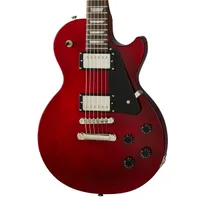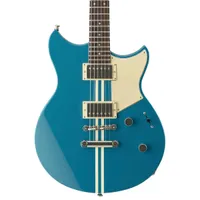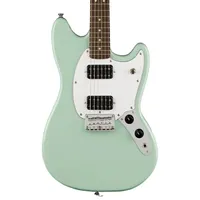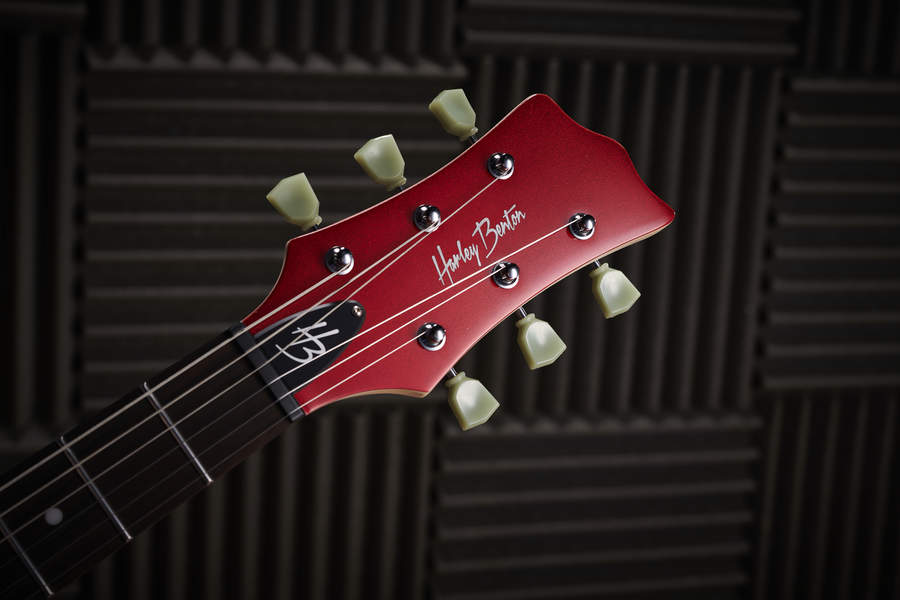Best beginner electric guitars 2026: top electric models for new players, reviewed and demoed by experts
So you're a budding guitarist? Get started with our pick of the best beginner electric guitars from Squier, Yamaha, and Epiphone
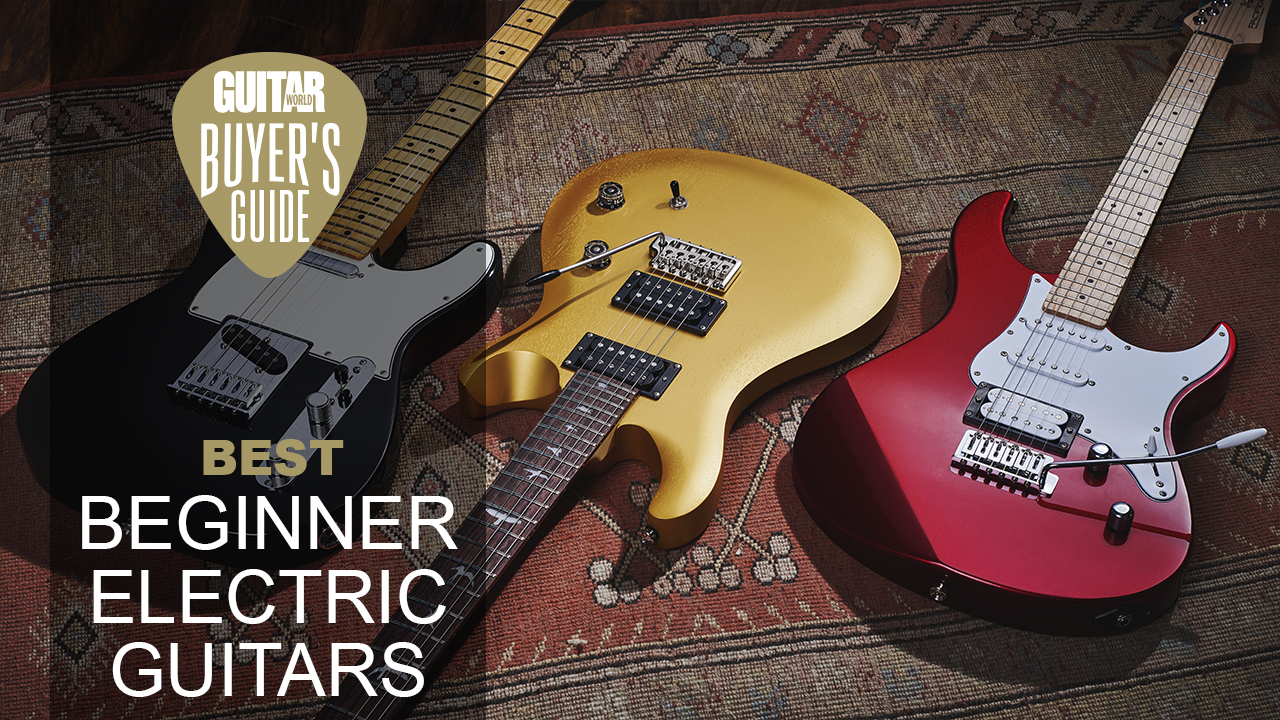
Getting your hands on your first guitar is an amazing moment, and hopefully the start of a long and fruitful relationship. But not all of us remember our first instruments fondly. Those longer in the tooth know that the best beginner electric guitars have come a long way in the last twenty years or so, providing incredible playability and excellent specs for relatively little money.
The selection of instruments at this level is massive, so picking yours can be difficult if you don’t know your stuff. To help you out, I’ve applied my years of experience not only playing guitar, but also selling them professionally for nearly 10 years in a guitar shop, and now writing about and reviewing them for Guitar World, to carefully curate a list of the very best beginner-friendly electric guitars on the market.
Along with detailed write-ups covering the ins and outs of each instrument, you’ll also find a video demo for many of the models in this guide (with more on their way), expertly performed by Guitar World’s own Matt McCracken. In the videos, Matt runs you through all the tones you can expect from your new guitar, demonstrating each pickup setting through both a clean and distorted amplifier.
Currently, my top pick is the legendary Yamaha Pacifica 112V. Combining superb build quality with a comfortable neck and a massive range of tones, this guitar sets the standard by which all other beginner models are measured. For smaller players, I highly recommend the Ibanez GRGM21M-BLT. This pint-sized six-string may be small in size, but don’t be fooled, it more than delivers on tone and is ideal for young kids.
If you’re new to the electric guitar, make sure to have a look at my FAQs, where our guitar gurus and I have answered loads of common guitar-related questions. If you already know your stuff, then keep scrolling for our top picks.
My top picks
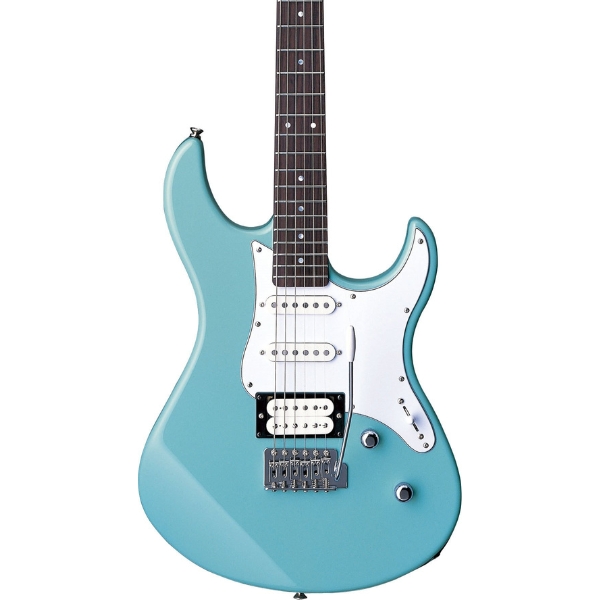
The Yamaha Pacifica 112V might not have the same appeal as bigger names like Fender and PRS, but this guitar is a seriously good playing instrument. Perfect for beginner guitar players, the HSS pickup configuration and build quality make it phenomenal value.

When choosing a smaller option for kids, there was only going to be one option for me, the pint-sized Ibanez miKro GRGM21. The Ibanez miKro GRGM21 features impressive build quality for a compact guitar. With a smaller body and sturdy hardware, it feels solid and well-assembled.
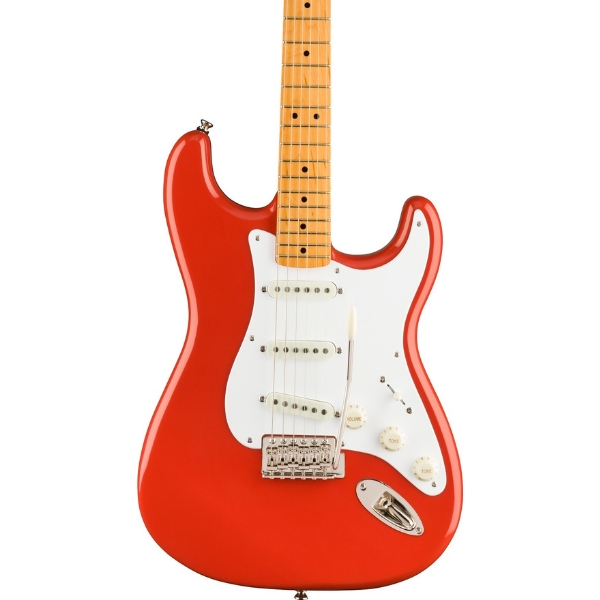
If you're looking for one of the best beginner electric guitars on the market for adults, the Squier Classic Vibe '50s Strat takes some beating. It's got a comfortable neck profile and a trio of pickups that deliver the famed bite and spank that is the cornerstone of the Strat sound.

For the aspiring Blink 182 fan, the Tom DeLonge signature model is likely going to be out of reach at well over a grand. Fear not, though, because you can have all that stripped-back style and attitude at a much lower price.

The Fender Player II Telecaster builds on the success of the original Player Series, which debuted in 2018 and quickly became a favorite among guitarists. The new models incorporate subtle upgrades that enhance playability while maintaining classic aesthetics and tone.

Got ambitions of becoming a metal guitar god? Well, you'll need a suitably metal guitar, and I have just the right thing - enter the Jackson Dinky JS11. The Jackson JS Series Dinky JS11 impresses with its solid build quality, receiving an impressive score in our review.
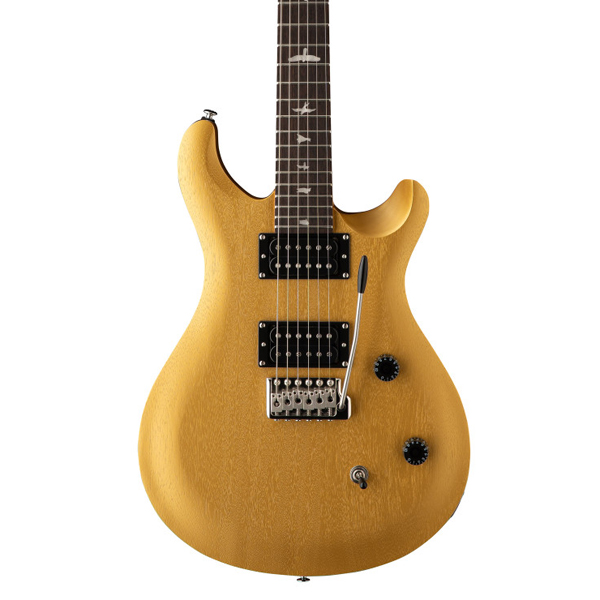
Best known for their USA-crafted masterpieces lavished with exotic woods and other incredible materials, PRS is a relative newcomer to the world of budget guitars - but they’ve definitely made an entrance. The ‘SE’ range may be for beginners, but we’re struggling to find anything ‘beginner’ about these guitars other than the price.

For those beginners seeking to channel the blues, there's only one guitar that comes to mind for me, the ES-335. I'm a massive fan of the Gibson variant, and I think for beginners, the Epiphone version is a fantastic option.

The Gretsch G2420 Streamliner impresses with its stunning aesthetics and lightweight construction. Finished in a glossy Village Amber that showcases the laminated maple top's grain, it features a striking tortoiseshell pickguard and a Chromatic II trapeze-style tailpiece that oozes retro mojo.
Best overall

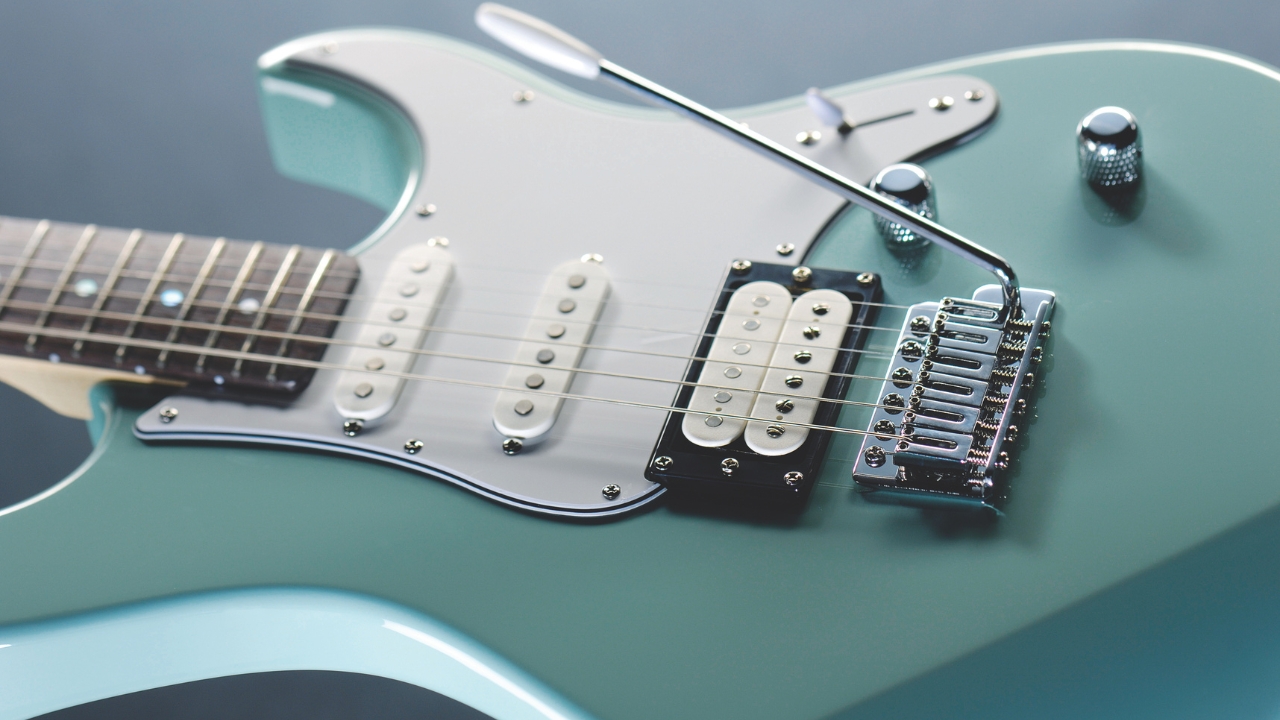
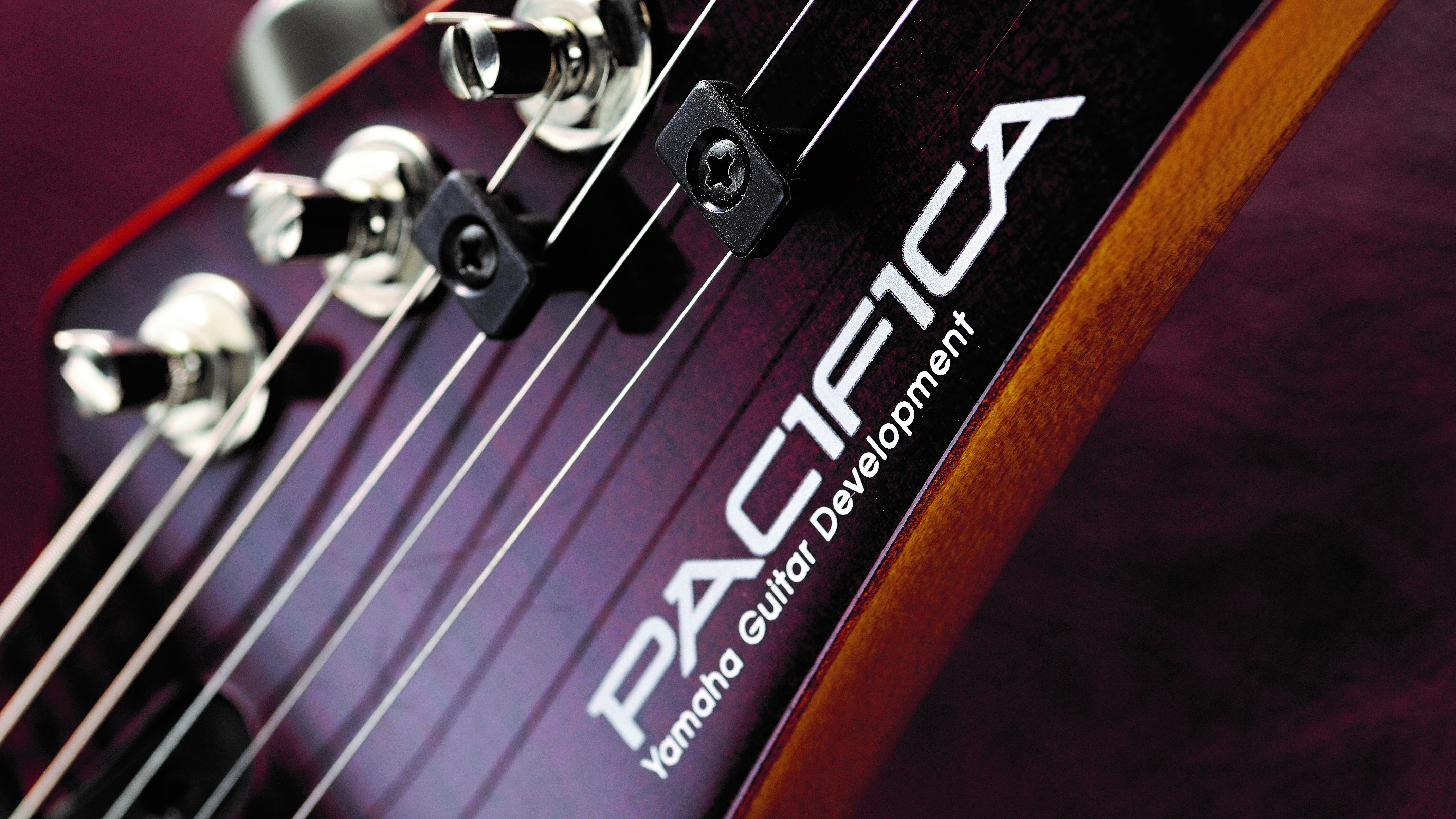
Specifications
Reasons to buy
Reasons to avoid
✅ Buy if you want value for money: The Pacifica 112V has been a go-to beginner guitar for many years now, thanks to its low cost, great pickups, and excellent build quality.
❌ Avoid if you want classic looks: Although it's a similar shape to a classic Strat, is does differ enough that those who want a classic guitar might not appreciate the look.
Build: ★★★★★
Playability: ★★★★½
Sound: ★★★★☆
Overall: ★★★★½
First introduced in 1993, the Yamaha Pacifica 112V electric guitar has earned its place at the table of quality electric guitars for beginners. While it doesn’t bring with it quite the same mojo as a Fender or a Gibson, this impressive Strat-style guitar makes up for that with levels of playability and build quality that far exceed expectations from its smaller price tag.
Build: Being a Yamaha product, you expect a certain standard of build, and thankfully, that’s exactly what you get with the 112V. This guitar is solid as a rock, with a neat and tidy build that would make more expensive guitars jealous.
Playability: In our review, we praised the model’s superb playability, stating, “the rosewood fingerboard was perfectly playable, with even a hint of rounding at the edges, which made for a comfortable playing experience. The maple neck felt almost satin, and there was no tackiness from our grubby hands as we played during one of the hottest summers on record.”
Sound: A juicy-sounding humbucker at the bridge proved to us that overdriven sounds were well within reach during our testing, while the two single coil pickups provided us a superb breadth of tones. While there are undoubtedly ‘cheap’ guitars you’ll outgrow in no time, the Pacifica has enough interest to remain a staple in your roster for years to come.
Watch our demo...

"There are plenty of reasons why the Yamaha Pacifica 112V is still one of the best options for beginners. Look past that learner image, however, and you’ll find a versatile, well-made guitar that will bring something extra to any player’s roster."
Read more: Yamaha Pacifica 112V review
Best for kids

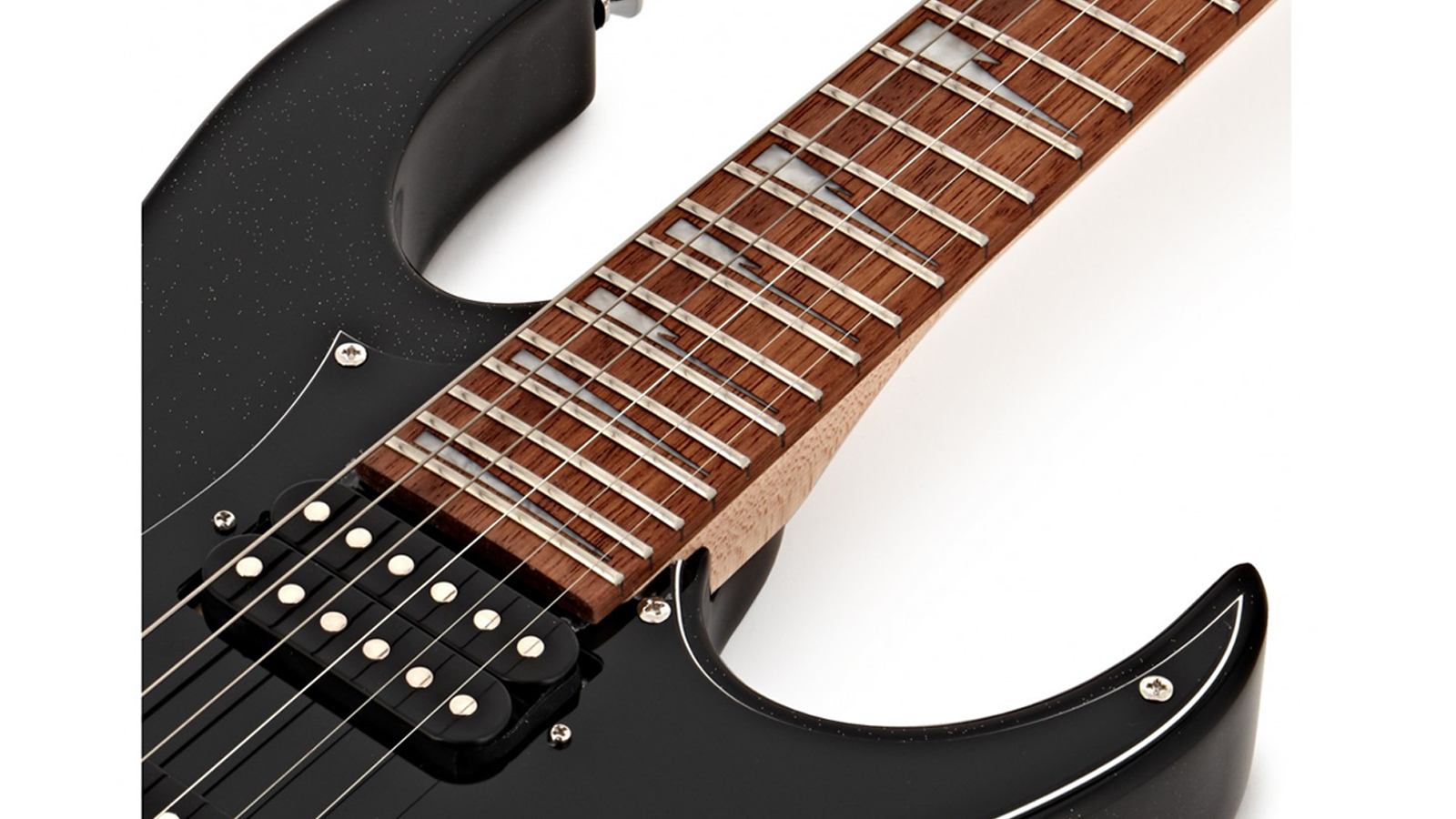
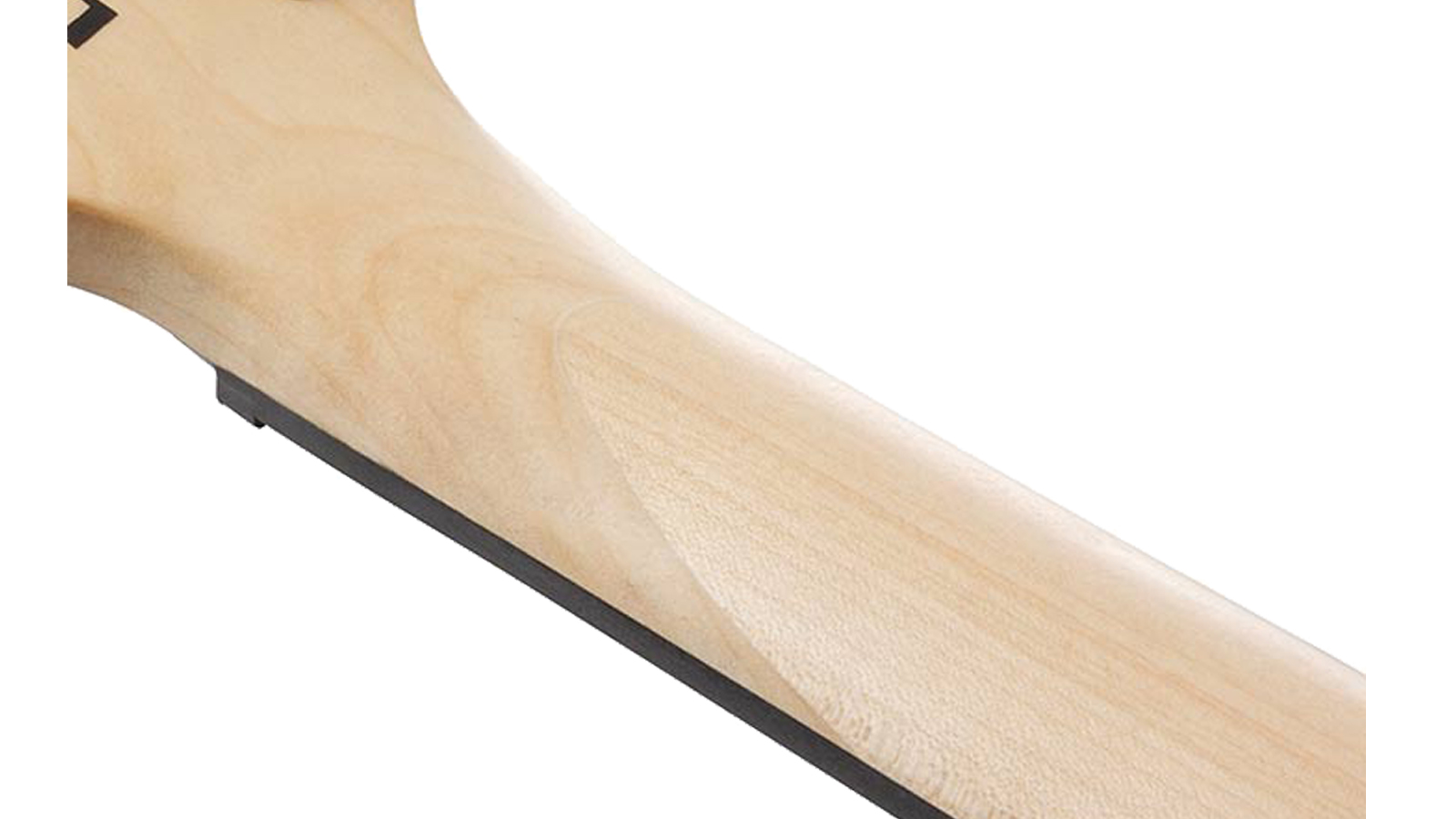

2. Ibanez miKro GRGM21M-BLT
Our expert review:
Specifications
Reasons to buy
Reasons to avoid
✅ Buy if you want an electric for small kids: With its ultra-small scale length, this 3/4-sized Ibanez is ideal for players aged 5 to 9 years old.
❌ Avoid if you are buying for an older player: This isn't a guitar for older children, but Ibanez does make plenty of full-sized guitars for players aged 9 and older.
Build: ★★★★☆
Playability: ★★★★☆
Sound: ★★★★☆
Overall: ★★★★☆
When choosing a smaller option for kids, there was only going to be one model for me, the pint-sized Ibanez miKro GRGM21.
Build: The Ibanez miKro GRGM21 features impressive build quality for a compact guitar. With a smaller body and sturdy hardware, it feels solid and well-assembled. The 22.2” scale offers a comfortable playing experience, while the thin neck design caters to players of all sizes, making it ideal for kids just learning or experienced players seeking a portable road companion.
Playability: For me, I found this short-scale electric guitar to be particularly easy to play, thanks to its low string tension and well-designed contours. The 24 frets provide ample range, though some may find the higher frets a bit cramped. It suits young starters perfectly while also being a fun, travel-friendly option for adults. However, I did find tuning stability to be an issue, requiring regular adjustments, especially after string bends.
Sound: When it comes to sound, the Ibanez miKro excels with overdriven and distorted tones, making it great for rock, blues, and punk. The bridge pickup delivers strong solos, while the neck pickup offers a warm, bluesy tone. While clean tones aren’t stellar, a little amp tweaking can improve them. Overall, it’s an excellent budget choice for anyone starting to play electric guitar.

"The Ibanez miKro GRGM21 is a great little guitar, suitable for both kids wanting to start out and experienced adults who just want a fun, portable electric guitar."
Read more: Ibanez miKro GRGM21 review
Best for adults


Specifications
Reasons to buy
Reasons to avoid
✅ Buy if you want a beginner guitar that will last: It's not the cheapest here, but the quality of the build, top-tier specs, and phenomenal playability means it will last way beyond those first chords.
❌ Avoid if you don't like vintage tones: As it's a '50s-inspired Strat, the emphasis here is on classic tones which means it's not great for heavier styles like metal.
Build: ★★★★★
Playability: ★★★★½
Sound: ★★★★½
Overall: ★★★★½
The Squier Classic Vibe series is renowned for providing quality specs at a fraction of the cost of a 'proper' Fender, and the Squier Classic Vibe '50s Stratocaster is a brilliant guitar for the money.
Build: Personally, I think the Squier Classic Vibe '50s Stratocaster showcases impressive build quality that goes way beyond what I would expect from a budget electric guitar. While it deviates from traditional materials - utilizing a nyatoh body instead of alder or poplar - the overall craftsmanship remains solid and seriously trustworthy. The guitar is well-balanced in weight, making it comfortable whether seated or playing with a strap.
Playability: The neck is super playable with a comfortable 'C' profile. It'll make those first licks and chords a breeze, and the narrow, tall frets make for easy bending when you get to that stage of your development.
Sound: Equipped with Fender-designed Alnico single coils, the Strat delivers a bright, dynamic tone that excels in various styles, but most notably with cleaner setups. To my ears, the pickups provide warm, balanced sound in the neck and middle positions, along with vintage-inspired bite from the bridge.
If the Strat itself doesn’t appeal to you, the beginner-friendly range extends to include Telecasters, Jaguars, and Jazzmasters, so at least one of the huge range of Squier guitars will suit you at this early stage in your guitar-playing journey.
Watch our demo...

"Squier consistently produces some of the very best affordable Strats money can buy, and this iteration of its Classic Vibe series proves that cheap does mean cheerful. The '50s specs of this model help provide an exciting and entertaining throwback to the genesis era of the Stratocaster at an accessible and affordable price tag."
Read more: Squier Classic Vibe ‘50s Stratocaster review
Best on a budget
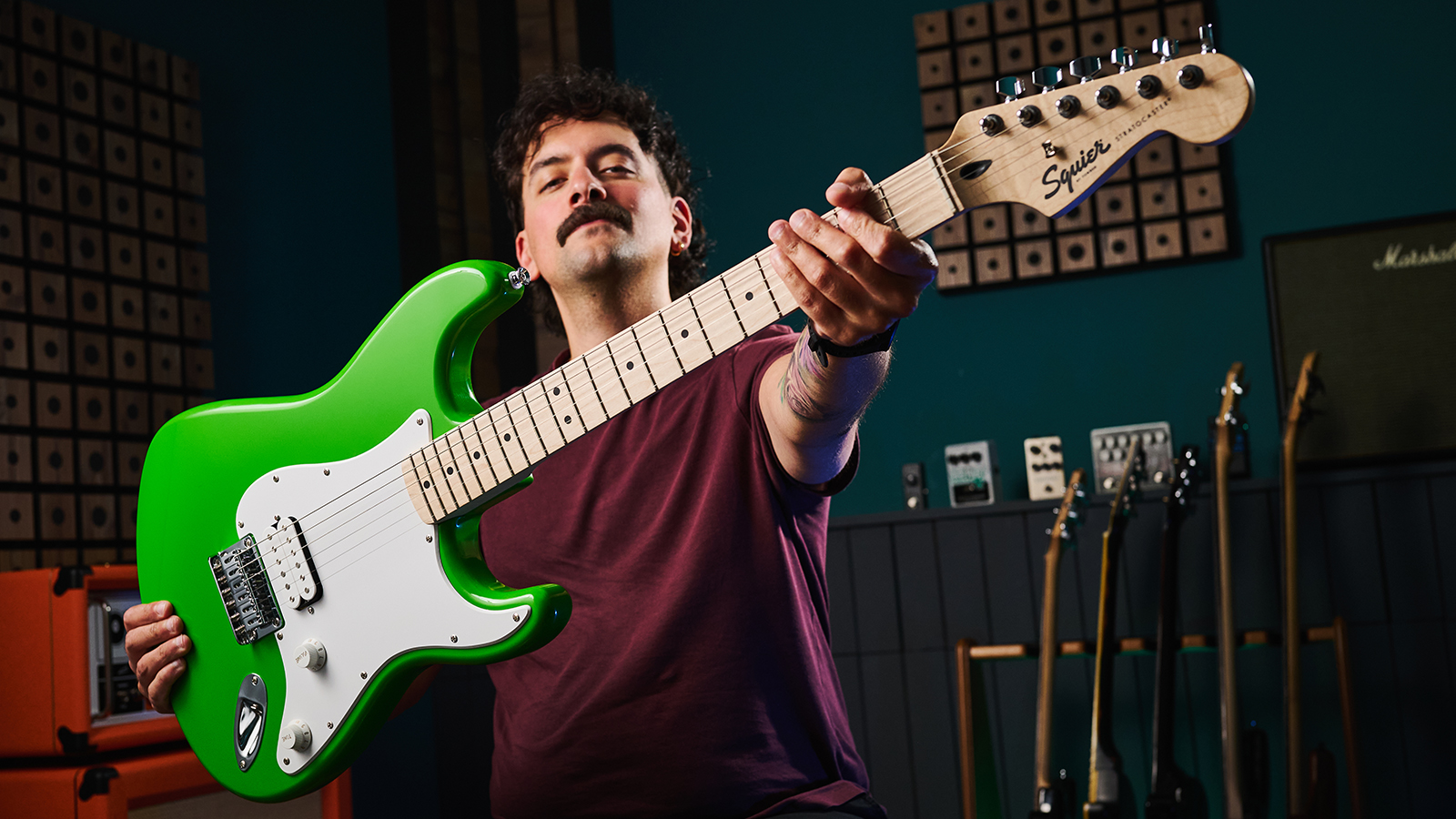

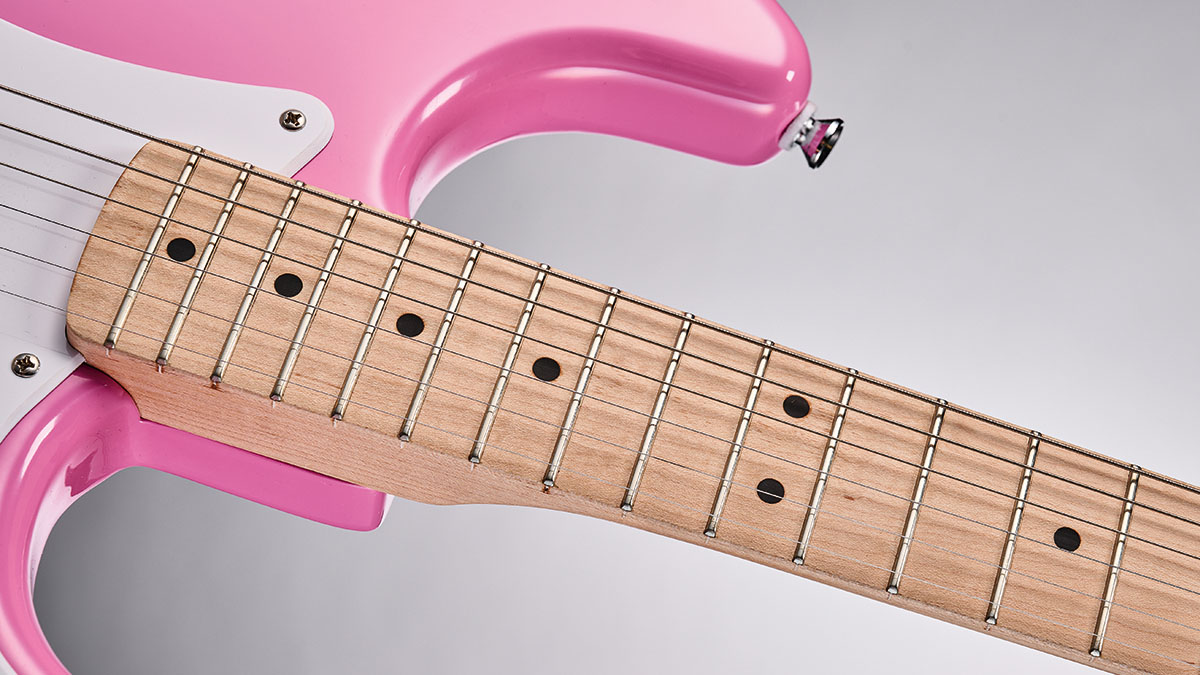
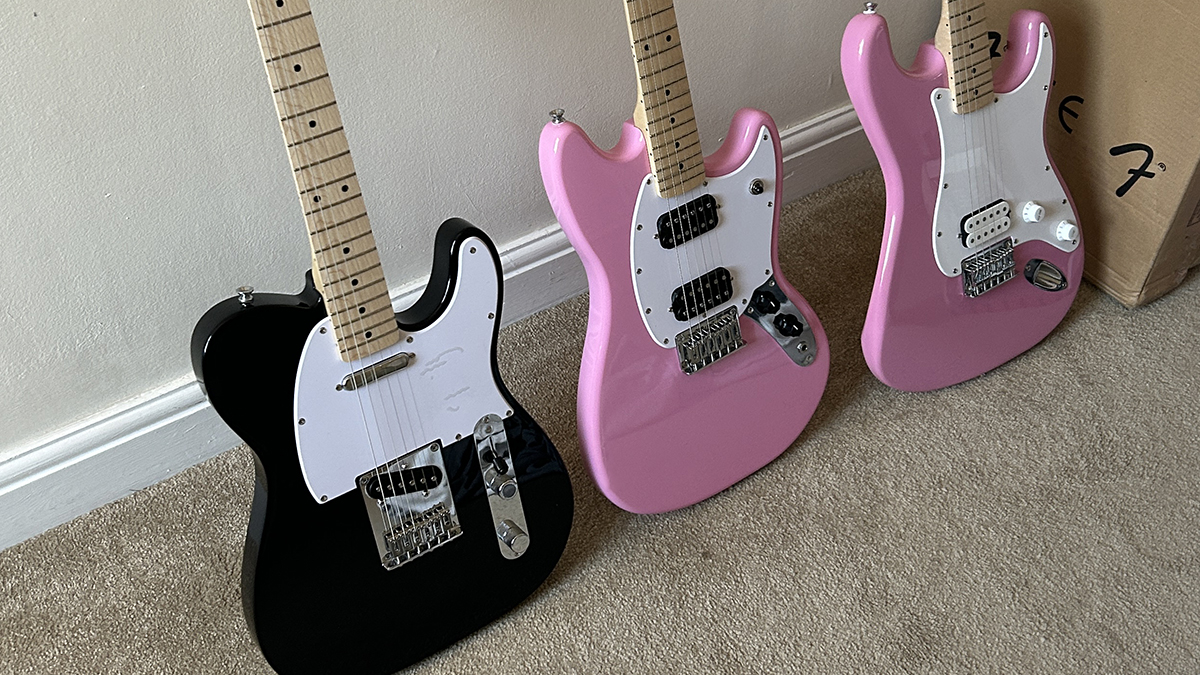
Specifications
Reasons to buy
Reasons to avoid
✅ Buy if you want something simple: With a single pickup, volume, and tone knob, the Squier Sonic Strat HT is perfect for players who want to keep thing simple.
❌ Avoid if you want versatility: If you want lots of different sounds from your guitar, then this isn't the beginner electric you're looking for.
Build: ★★★★☆
Playability: ★★★★☆
Sound: ★★★★☆
Overall: ★★★★☆
For the aspiring Blink 182 fan, the Tom DeLonge signature model is likely going to be out of reach at well over a grand. Fear not, though, because you can have all that stripped-back style and attitude at a much lower price.
Build: The Squier Sonic Stratocaster HT H presents a lightweight and straightforward design, featuring a body that resembles a standard Stratocaster. It has been stripped down to just one ceramic humbucker, which contributes to its reduced weight and simplified construction. This minimalistic approach reflects a well-crafted instrument that caters to both beginners and experienced players alike.
Playability: Now, despite its fairly basic design, the Sonic Stratocaster HT H offers a seriously enjoyable playing experience, in my opinion. The craftsmanship here is commendable, allowing for smooth playability across the fretboard, particularly at higher registers. The guitar’s light weight makes it comfortable to handle for younger players, and I found it a joy to play for extended periods of time.
Sound: Now, I need to mention that the tonal quality of the single ceramic humbucker is pretty impressive for its price point. While it may not rival Tom DeLonge’s signature Seymour Duncan Invader, it still produces a warm, hearty sound when played clean and offers robust high-gain tones when paired with a healthy amount of distortion.

"Squier's Sonic Series serves up another quality and credible electric for under $200 – and it's so good that beginners might rather upgrade its pickup than trade up for a higher-priced model. It's a keeper."
Read more: Squier Sonic Stratocaster HT H review
Best premium
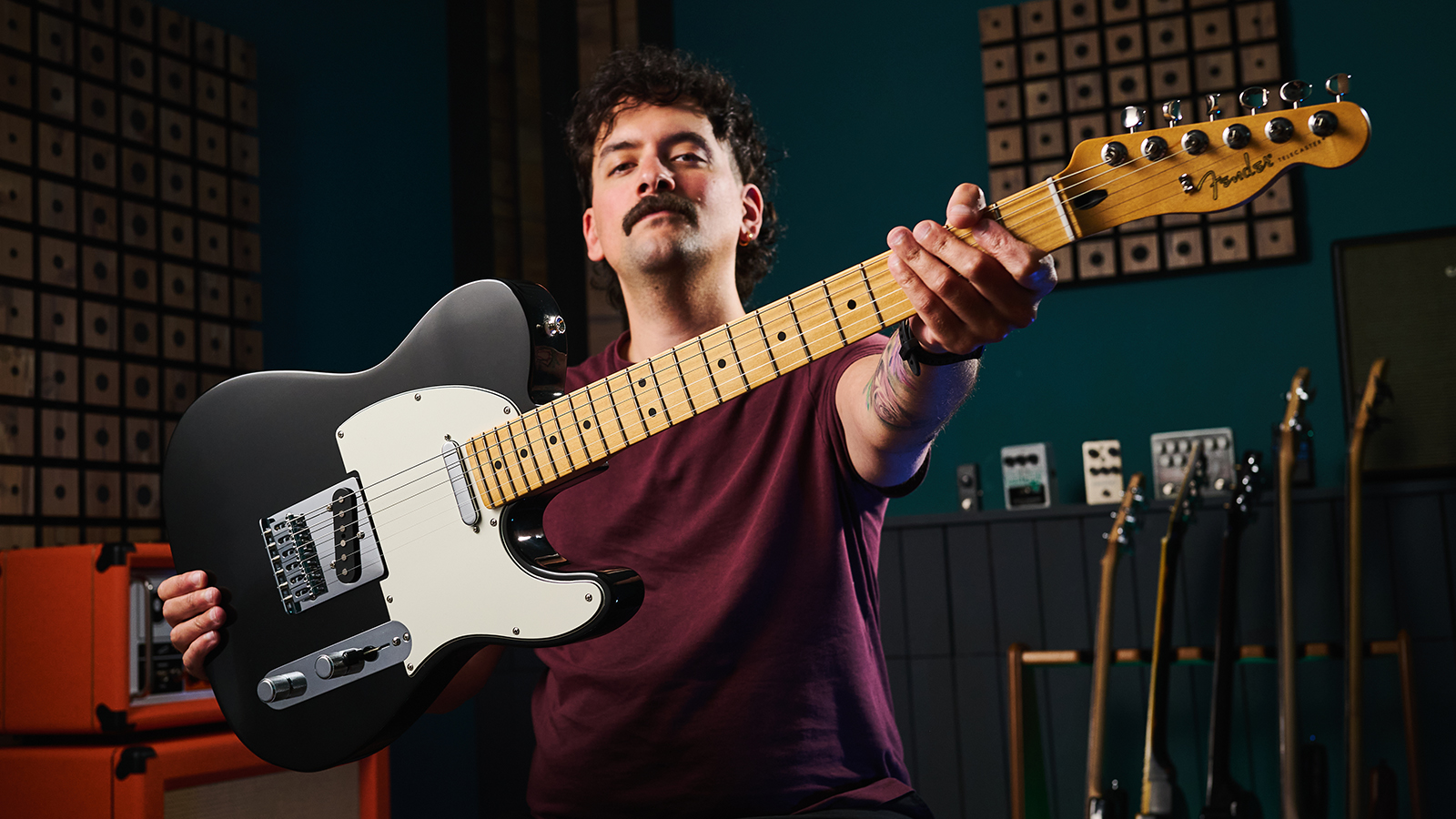
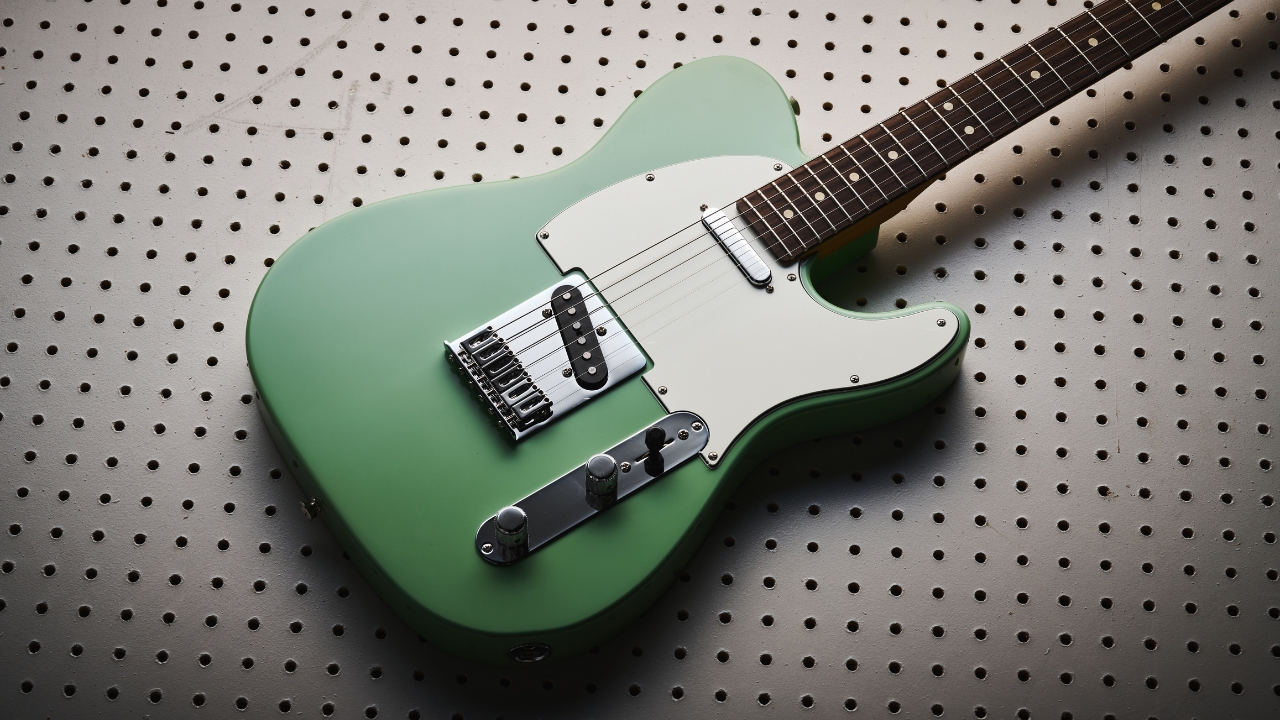
5. Fender Player II Telecaster
Our expert review:
Specifications
Reasons to buy
Reasons to avoid
✅ Buy if you want a more upmarket guitar: The Player II Tele is a superbly made guitar that you won't need to replace anytime soon. You can even gig this guitar when the time comes.
❌ Avoid if you're on a budget: Quality like this doesn't come cheap. If you have a tight budget, I'd recommend sticking to Squire.
Build: ★★★★ ½
Playability: ★★★★ ½
Sound: ★★★★ ½
Overall: ★★★★ ½
The Fender Player II Telecaster builds on the success of the original Player Series, which debuted in 2018 and quickly became a favorite among guitarists. The new models incorporate subtle upgrades that enhance playability while maintaining classic aesthetics and tone.
Build: I was always a fan of the original Player models, and I'm glad the same level of finishing has been applied to the newer version. The thoughtful updates, such as rolled edges, ClassicGear tuners, and the return of rosewood for the fingerboard, are welcome additions. This Tele offers vintage styling but boasts a modern flair with its 22 medium jumbo frets and contemporary pickups and hardware.
Playability: For me, playability is where the Player Series II truly shines. This Tele maintains the familiar ‘C’ neck profile of the previous version, which provides a smooth, slinky feel, making it ideal for various playing styles. The Rosewood fretboard adds a touch of elegance, ensuring easy access to high frets despite the chunky neck heel.
Sound: Telecasters are known for their bright bridge pickup and warm neck sounds, and in my opinion, can do pretty much any style. From country to blues, alternative to hard rock, the Tele may be a simple guitar, but it's a fiercely versatile one.

"Delivering all the classic sounds the Tele is renowned for, the Player II Series is the perfect way to get those golden-age guitar tones for less. With some deft modern touches, Player II nicely straddles the line between classic design and forward-thinking playability."
Read more: Fender Player II Telecaster review
Best for metal
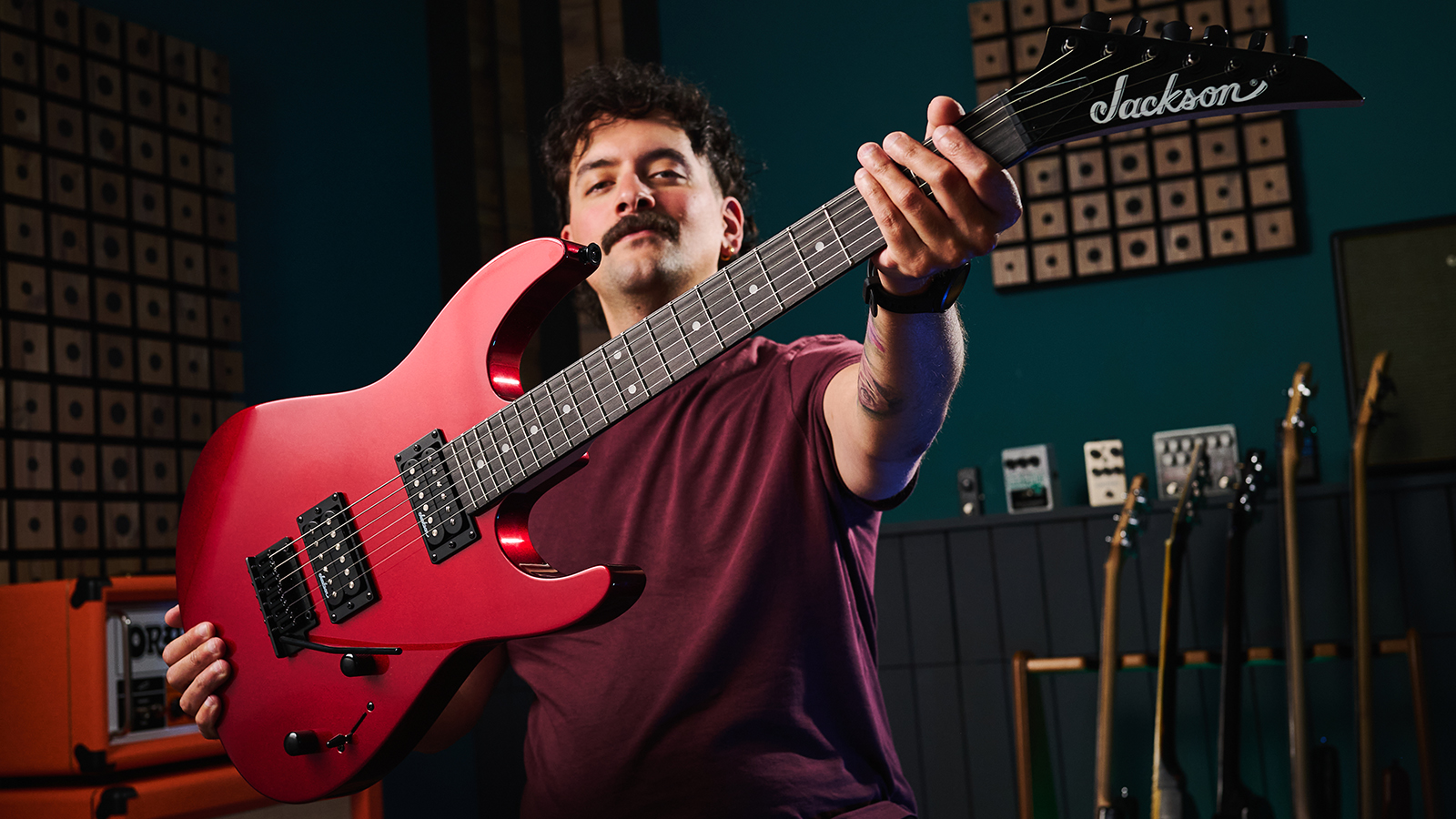
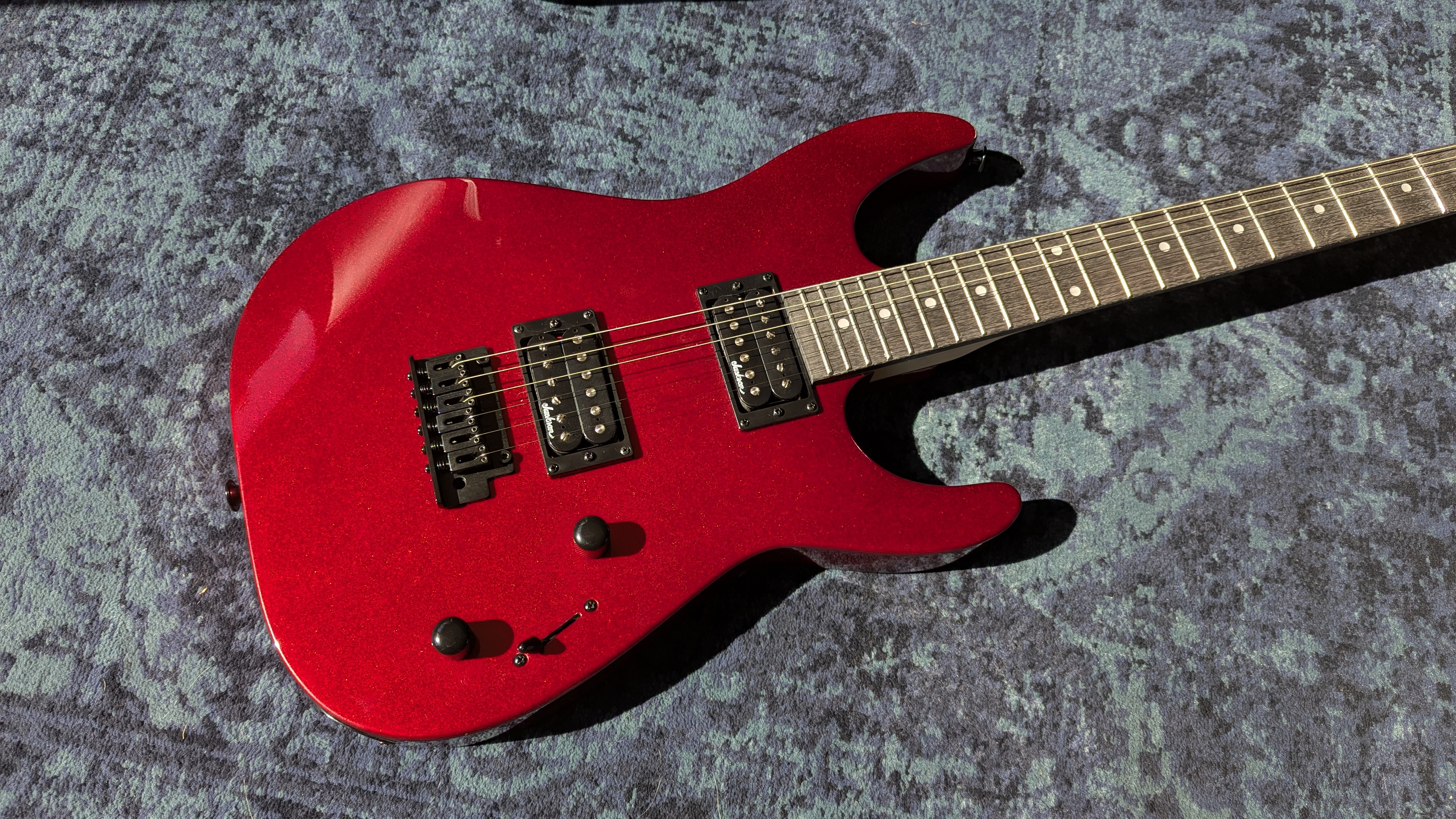
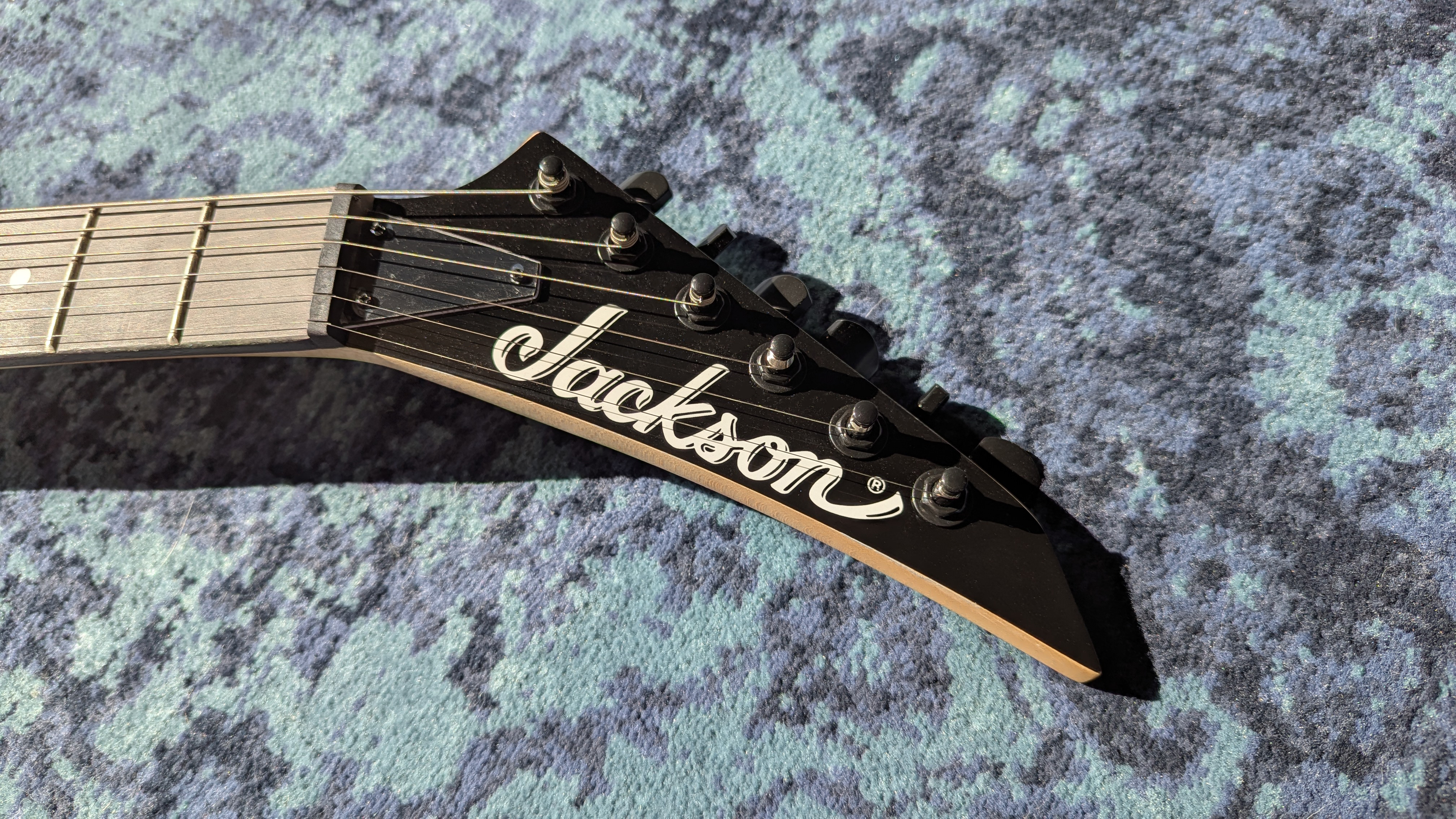

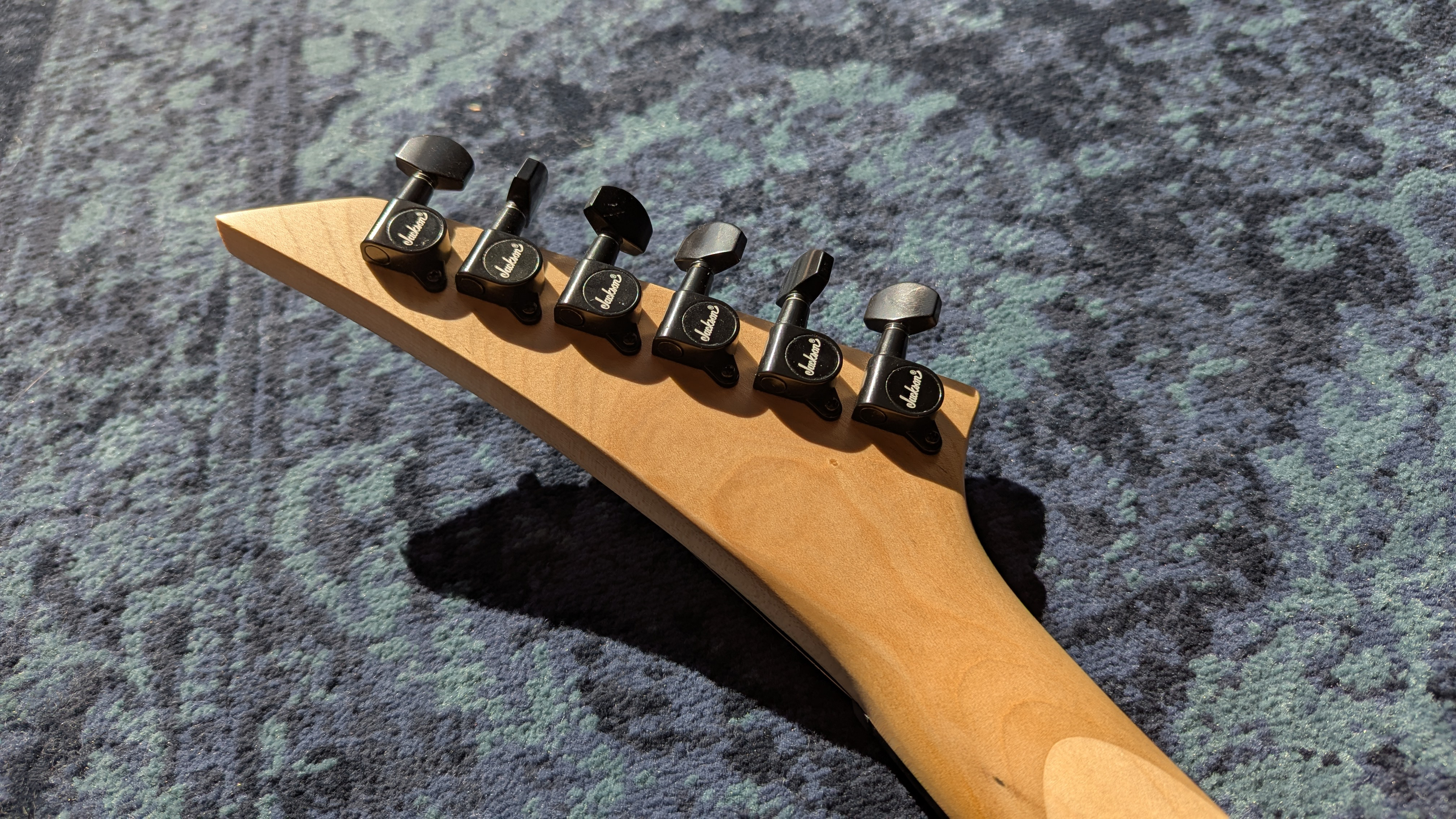
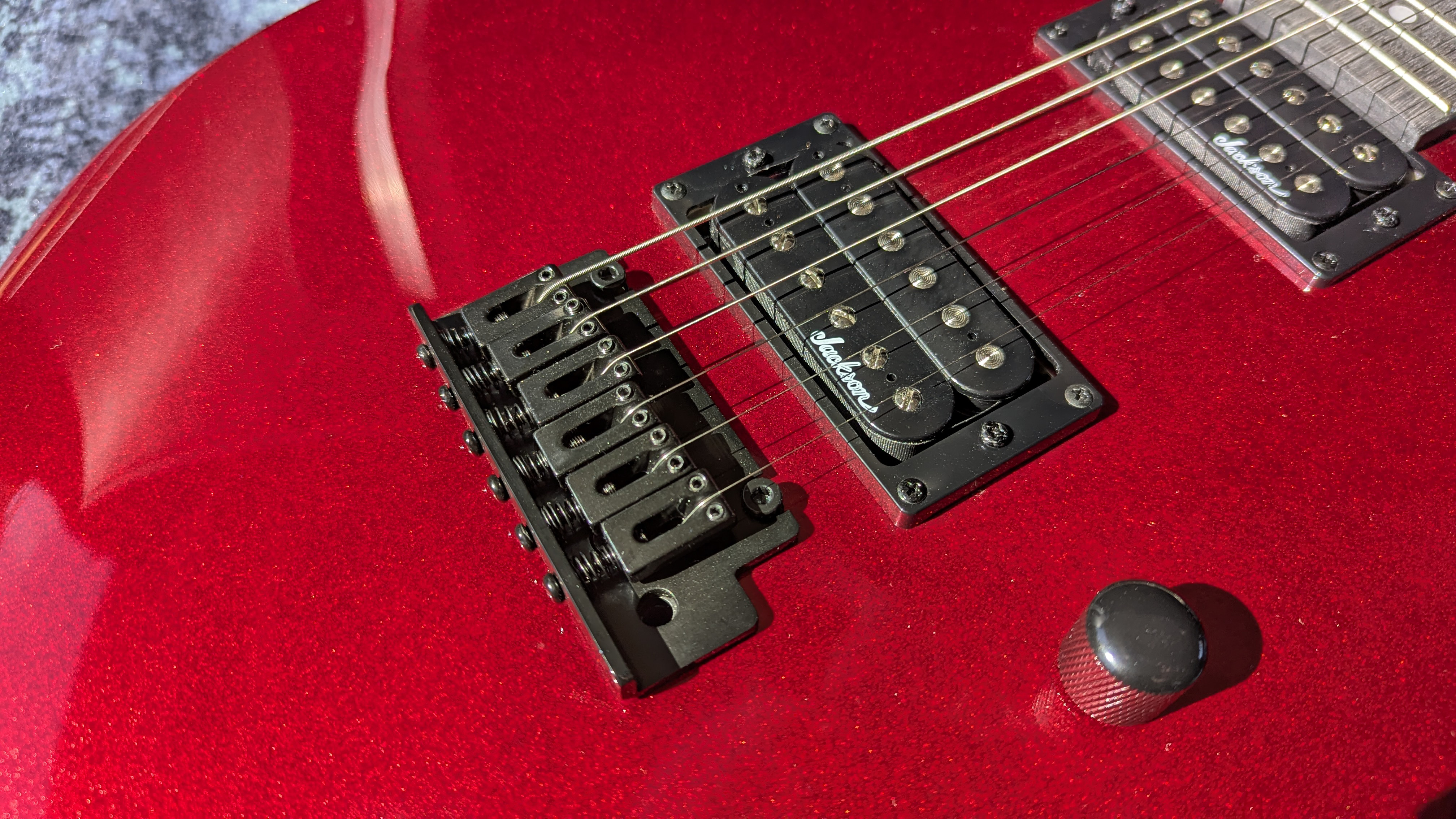
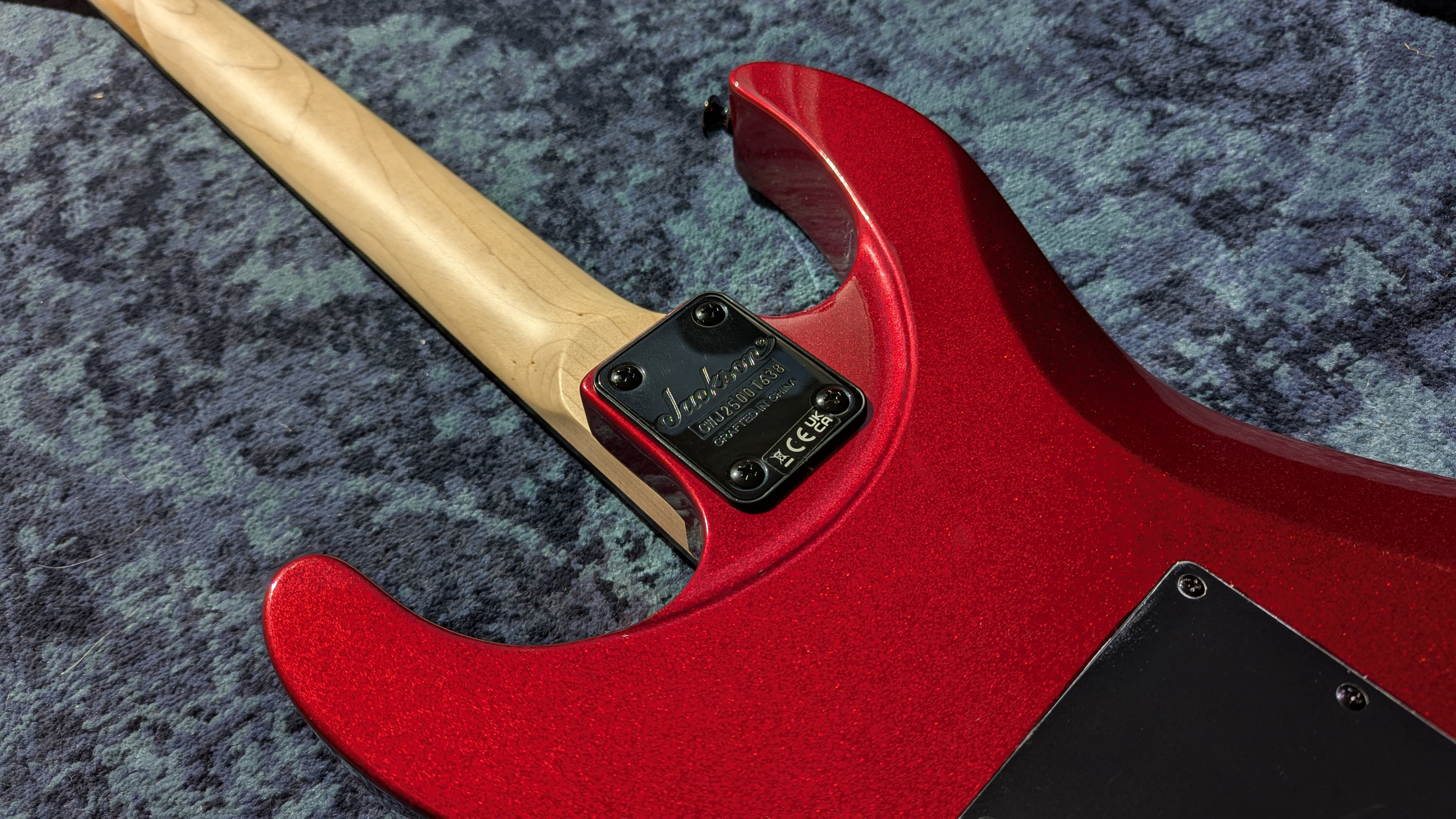
6. Jackson JS Series Dinky JS11
Our expert review:
Specifications
Reasons to buy
Reasons to avoid
✅ Buy if you want a great value metal guitar: There's a reason you see so many players starting with the JS-11. The value on offer here is staggering.
❌ Avoid if you want a traditional guitar: This is not a conventional sounding guitar. So if you are looking for vintage tones, you're best sticking with Epiphone or Squire.
Build: ★★★★☆
Playability: ★★★★☆
Sound: ★★★★☆
Overall: ★★★★ ½
Got ambitions of becoming a metal guitar god? Well, you'll need a suitably metal guitar, and I have just the right thing - enter the Jackson Dinky JS11.
Build: The Jackson JS Series Dinky JS11 impresses with its solid build quality, receiving an impressive score in our review. Upon unpacking, the guitar presented no aesthetic flaws or structural issues. The metallic finish is evenly applied, and the knobs and selector switch feel sturdy. However, the fretboard appeared dry and would benefit from a little oil. Overall, the instrument seems well-equipped to withstand the rigors of beginner use, making it suitable for practice and even first gigs.
Playability: For me, the playability of the JS11 stands out, thanks to its slim neck profile that is designed for speed and heavy riffing. The fingerboard feels flat and plays well for various shredding techniques. However, the tremolo system proved to be somewhat unusable out of the box, as it adversely affected tuning stability - a simple setup should resolve this issue.
Sound: Sonically, the JS11 delivers impressive metal tones, particularly with its bridge humbucker that excels in higher gain settings. A bright attack and sharp mids are just what's needed for modern metal. Unfortunately, in my tests, the neck pickup may come off as a little muffled and wooly. While this isn't exactly ideal for experienced tone seekers, it offers decent quality for newcomers looking to hone their skills.
Watch our demo...

“Small issues aside, for beginners who love heavy music, I really can’t recommend the JS11 enough. It’s got plenty of heft in the bridge pickup to cover the vast majority of metal tones from modern to classic, and more importantly, it’s got a brilliantly fast-playing neck that will enable the slinky playability needed to learn how to play metal guitar.”
Read more: Jackson JS Series Dinky JS11 review
Best for rock
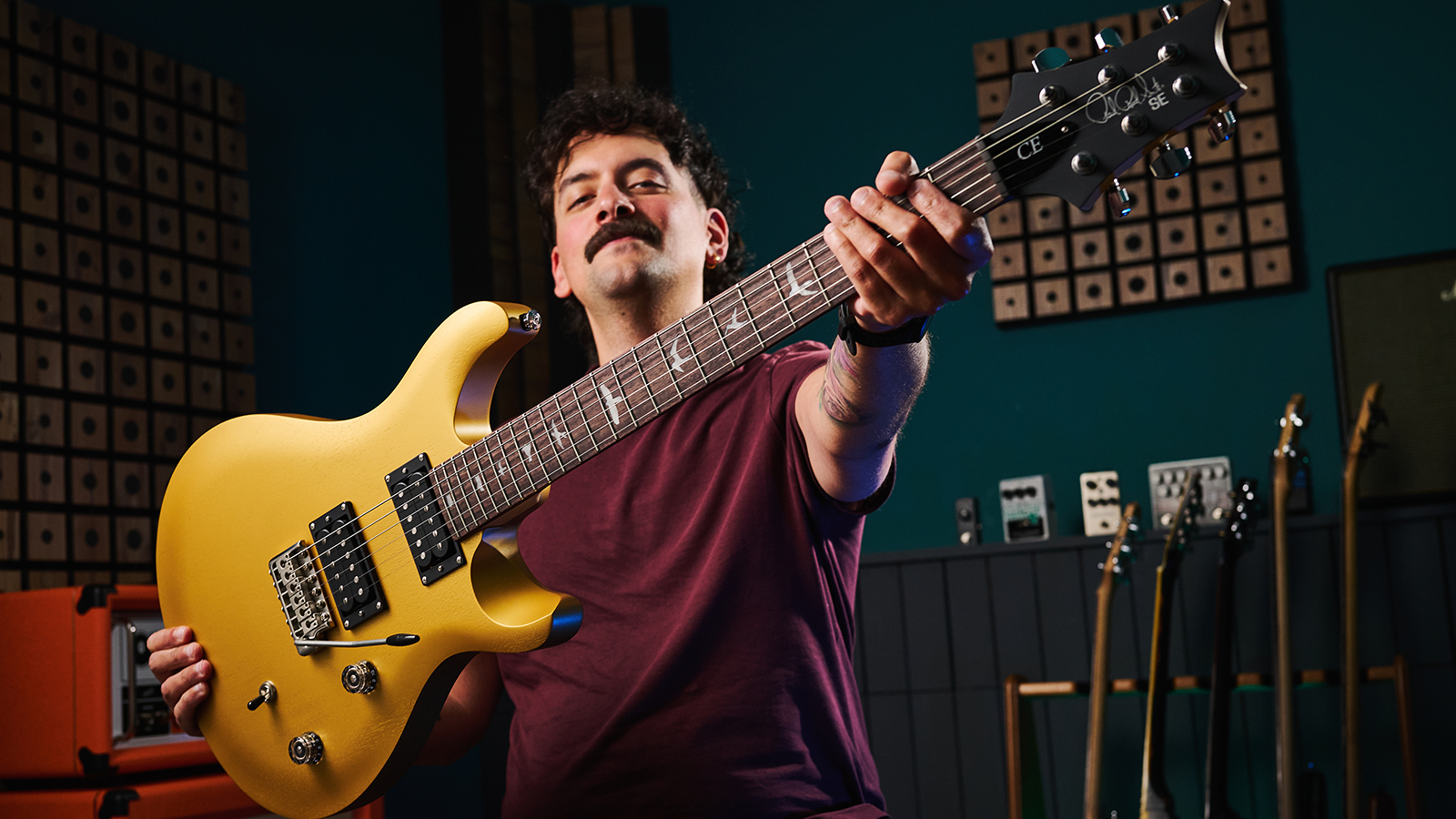

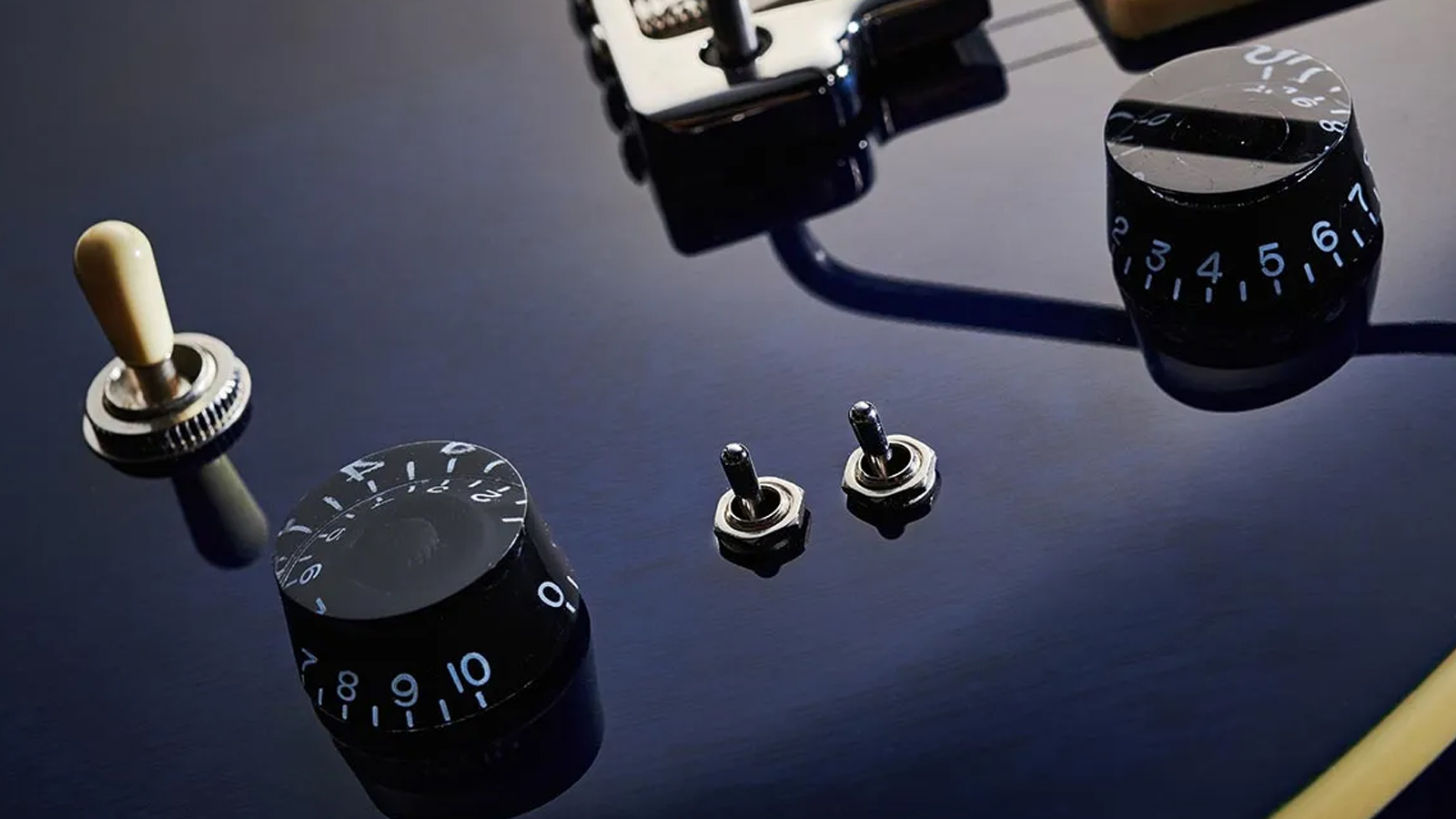
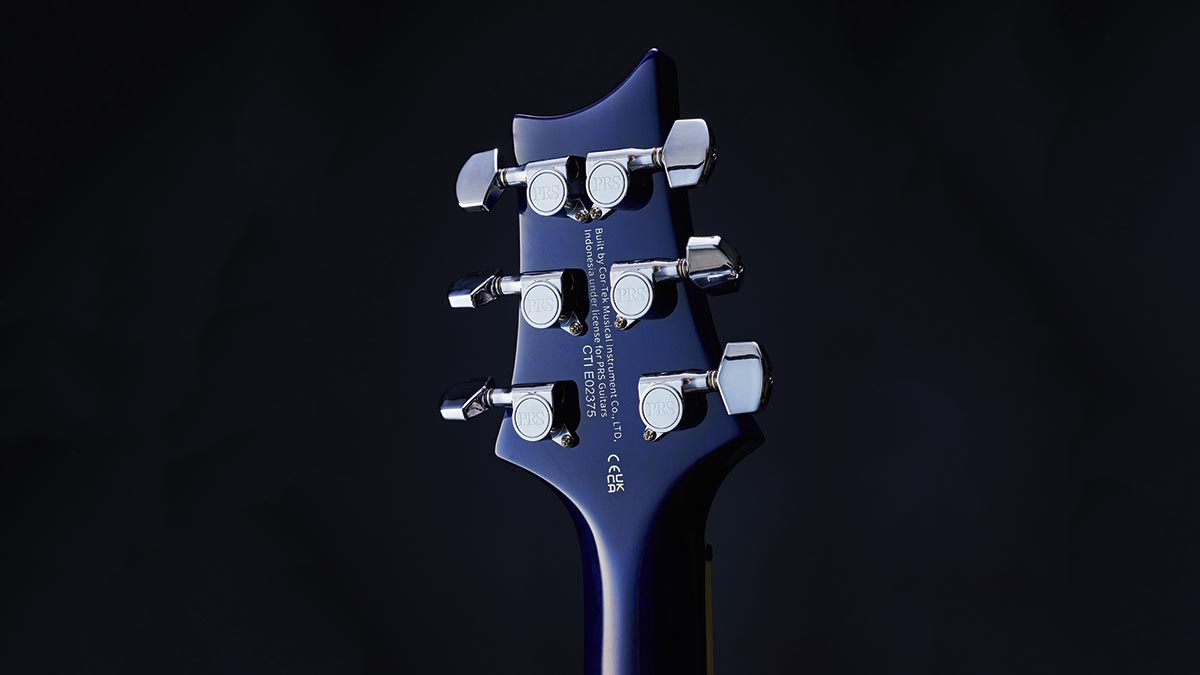

Specifications
Reasons to buy
Reasons to avoid
✅ Buy if you want versatile tones: With two humbuckers and the option to coil split each, you get a lot of different tones for your money with the SE CE 24.
❌ Avoid if you don't like bolt-on necks: Unlike other, more common PRS models, this guitar features a bolt-on maple neck.
Build: ★★★★ ½
Playability: ★★★★ ½
Sound: ★★★★★
Overall: ★★★★ ½
Best known for their USA-crafted masterpieces lavished with exotic woods and other incredible materials, PRS is a relative newcomer to the world of budget guitars - but they’ve definitely made an entrance.
Build: The PRS SE CE 24 Standard Satin features an all-mahogany body, opts for a minimalistic aesthetic without binding or an elaborate maple veneer. This guitar is simple, and I have to say, it's expertly crafted.
This model includes a 635mm maple neck with a rosewood fretboard, and thankfully, it retains the signature PRS bird inlays.
Playability: The neck's generous nut width and relaxed shoulders make it feel more accessible than it appears on paper. Although a little more fingerboard-edge rolling could enhance the experience, the medium jumbo frets are well-installed, and the setup allows for excellent playability, holding its tuning even with heavy vibrato.
Sound: The pickups are PRS’ own 85/15 “S” creations - a re-designed version of the pickups that you’d likely find in much more expensive models - and combined with a coil-split hidden in the tone control, we found access to even more tones during our testing. There’s not much this guitar can’t do.
Watch our demo...

"For any player, at any level, needing to cover a lot of sounds, this really takes some beating: the pared-down essence of PRS, if you like, and a guitar we really can’t fault. Try one of these before someone realises they’ve made a mistake with the price."
Read more: PRS SE CE 24Standard review
Best for blues

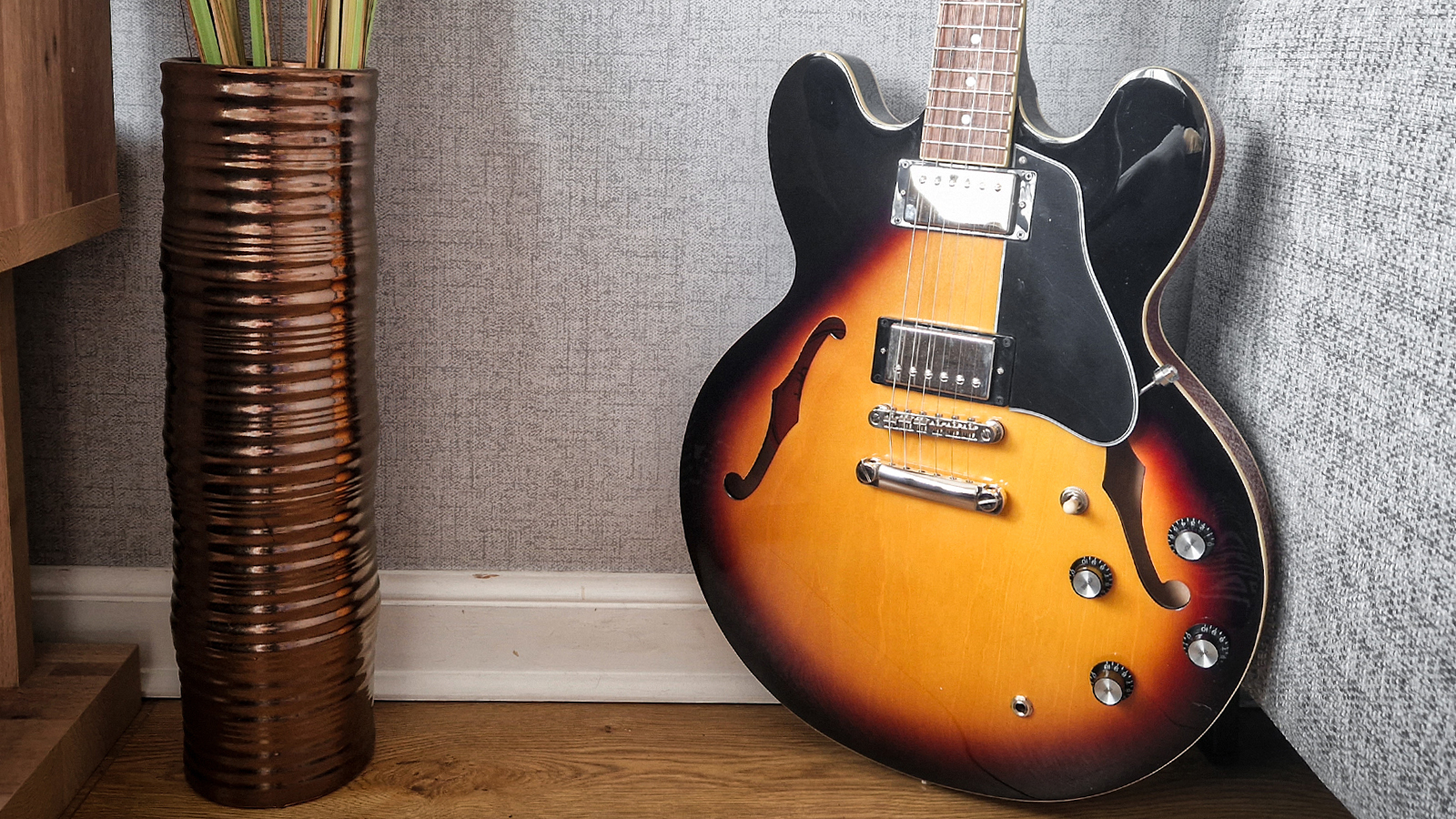
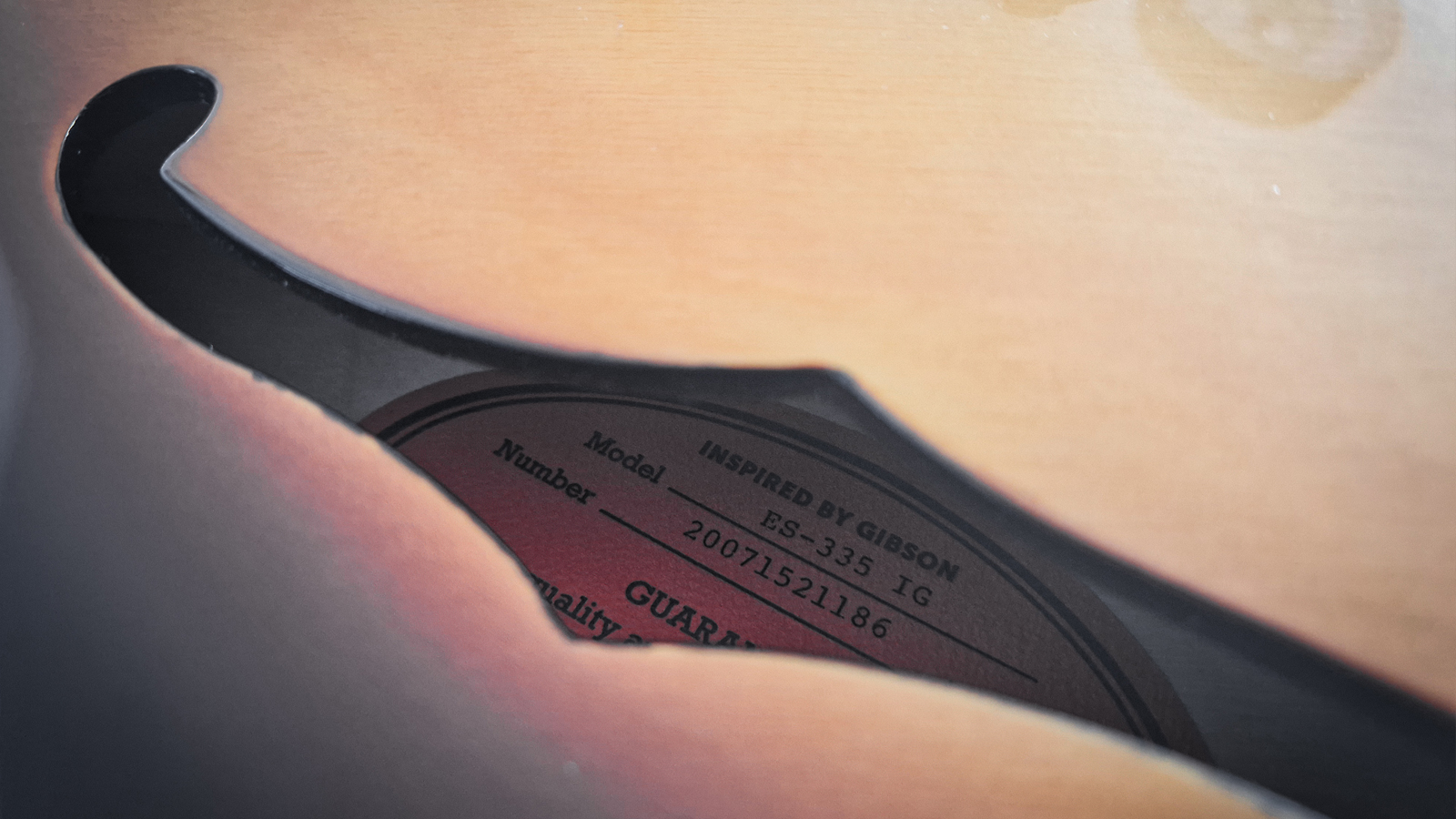
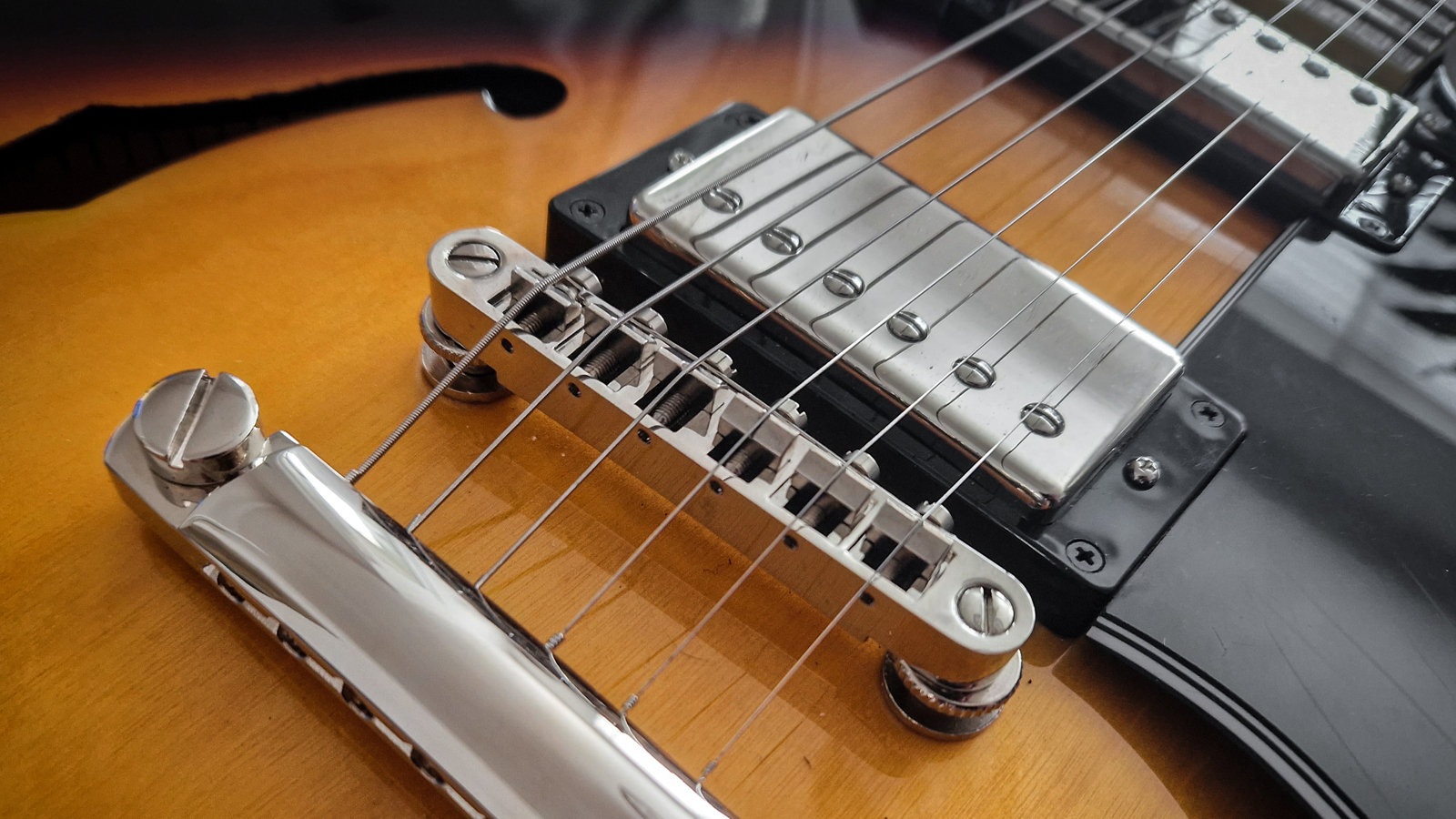
Specifications
Reasons to buy
Reasons to avoid
✅ Buy if you're into classic guitar styles: This semi-hollow is a classic for a reason. Its larger-than-lift tone is unmistakable.
❌ Avoid if you don't want a large guitar: This guitar is a chunky bit of kit, so it could be too large for some players.
Build: ★★★★☆
Playability: ★★★★☆
Sound: ★★★★☆
Overall: ★★★★☆
For those beginners seeking to channel the blues, there's only one guitar that comes to mind for me, the ES-335. I'm a massive fan of the Gibson variant, and I think for beginners, the Epiphone version is a fantastic option.
Build: The Inspired By Gibson Epiphone ES-335 is crafted with a layered maple top, back, and sides, featuring a solid maple tone block that enhances sustain. To me, the guitar feels robust yet lightweight, and its attractive Olive Drab finish, while a poly rather than nitrocellulose, offers a vintage vibe that looks simply stunning. It is worth noting that this is a rather large guitar, so it's not really suited to younger players.
Playability: Equipped with a rounded C-neck profile, the Epiphone ES-335 provides a comfortable grip that mimics its Gibson counterpart, making it a joy to play. I'm happy to report that the model I reviewed was exceptionally well set up straight out of the box, allowing for smooth transitions across the entire fretboard.
Sound: Powered by dual Epiphone Classic Pro humbuckers, this guitar captures the throwback tones reminiscent of the golden age of rock and blues. The neck pickup offers a warm, rounded tone, while the bridge humbucker provides a brighter attack. I've often said that the ES-335 is one of the most versatile guitars on the market, and this Epiphone proves it.
Watch our demo...
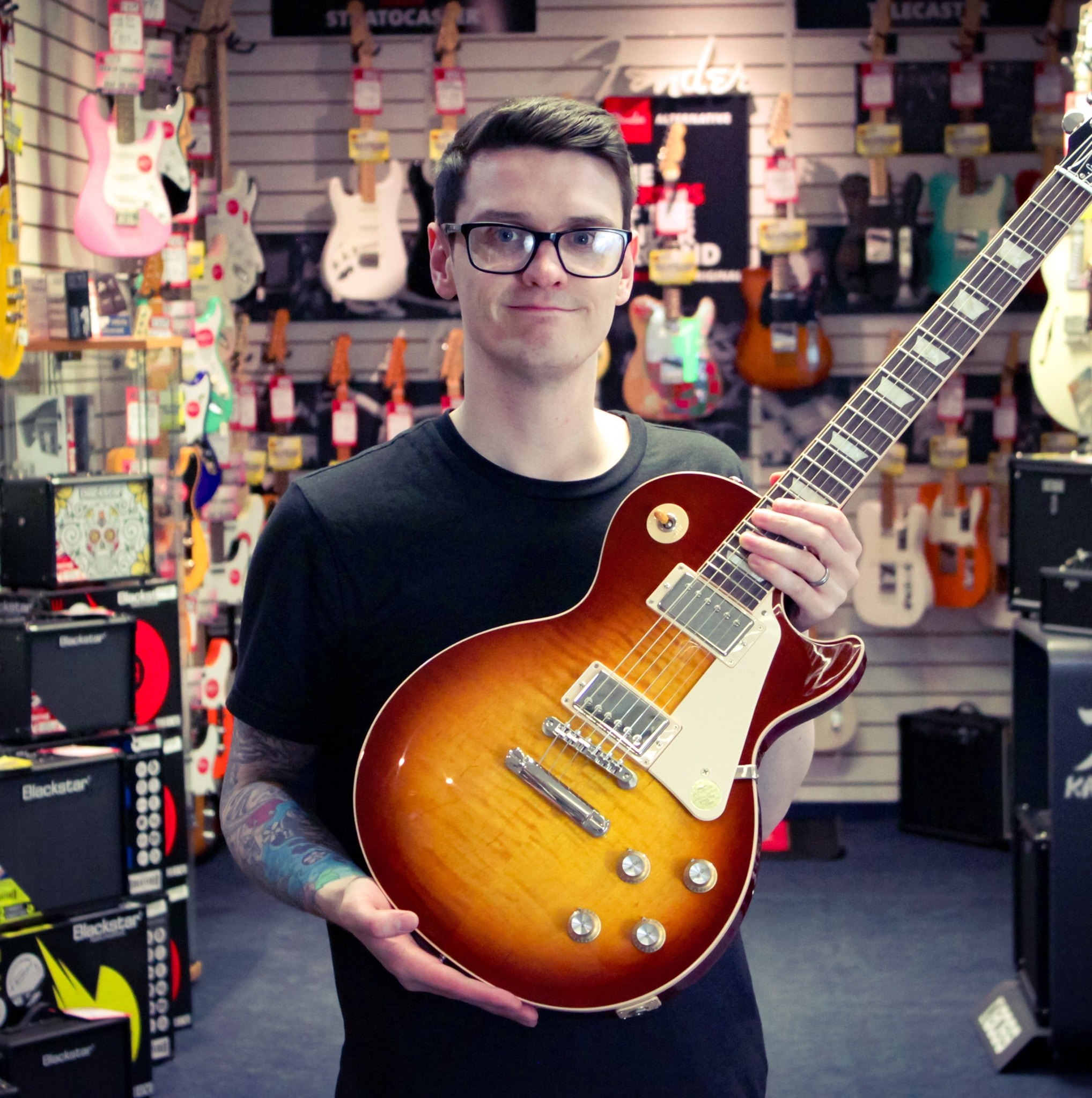
"For some players, versatility is of the utmost importance when it comes to a guitar, and we believe there’s a strong argument to be made that the humble ES-335 is among the most adaptable instruments out there – and this stunning Epiphone proves why."
Read more: Epiphone ES-335 review
Best for country

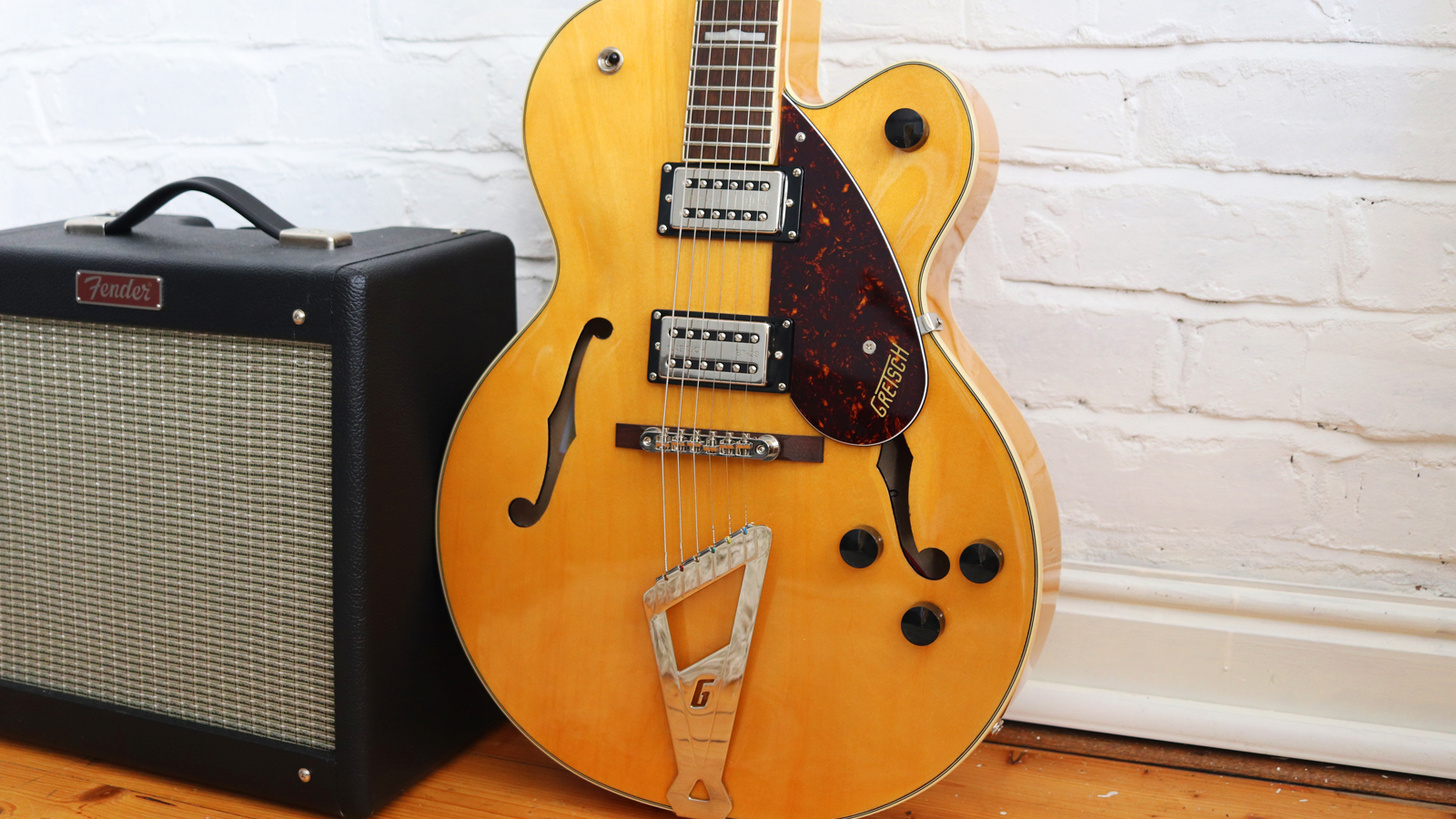
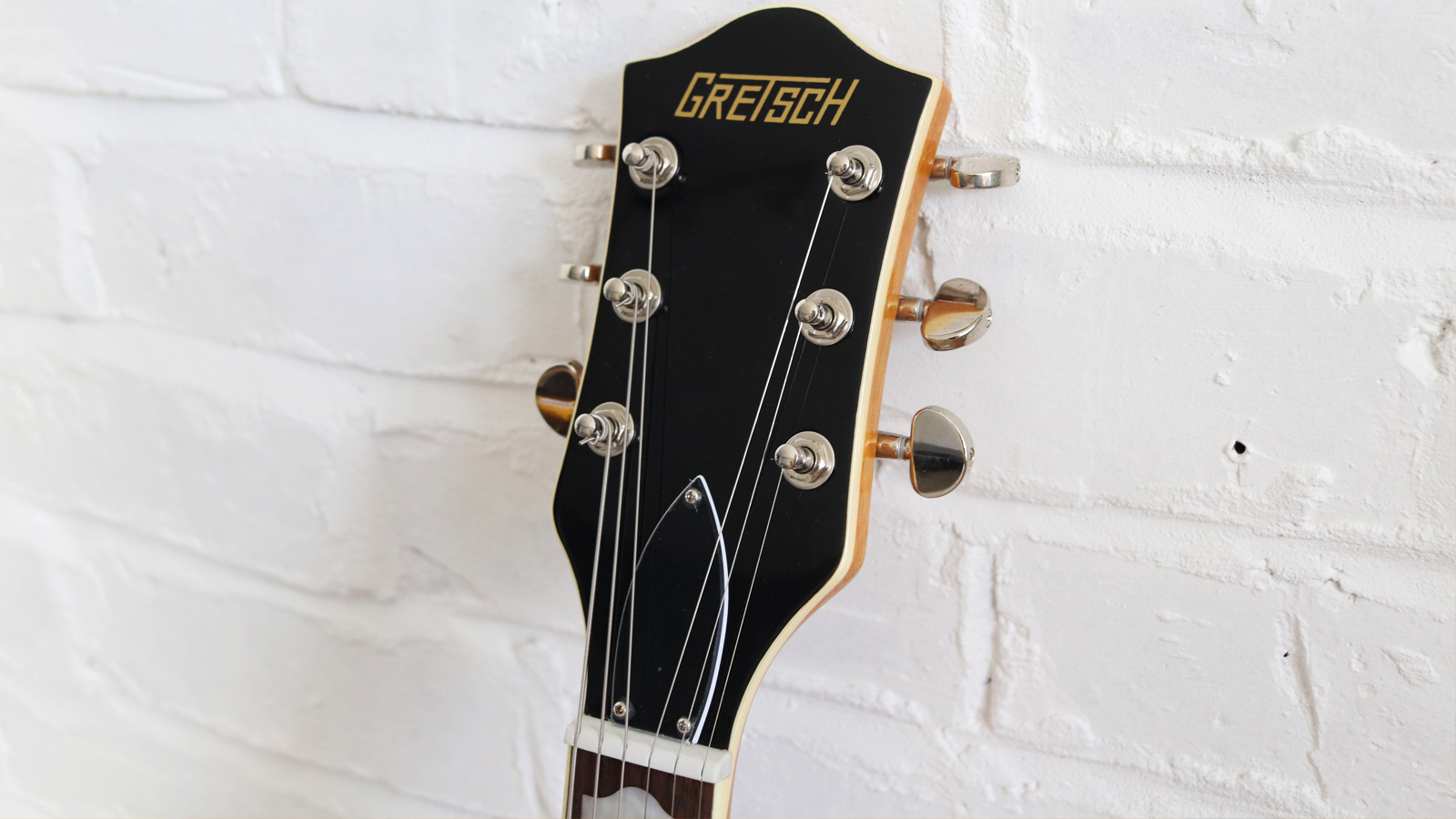
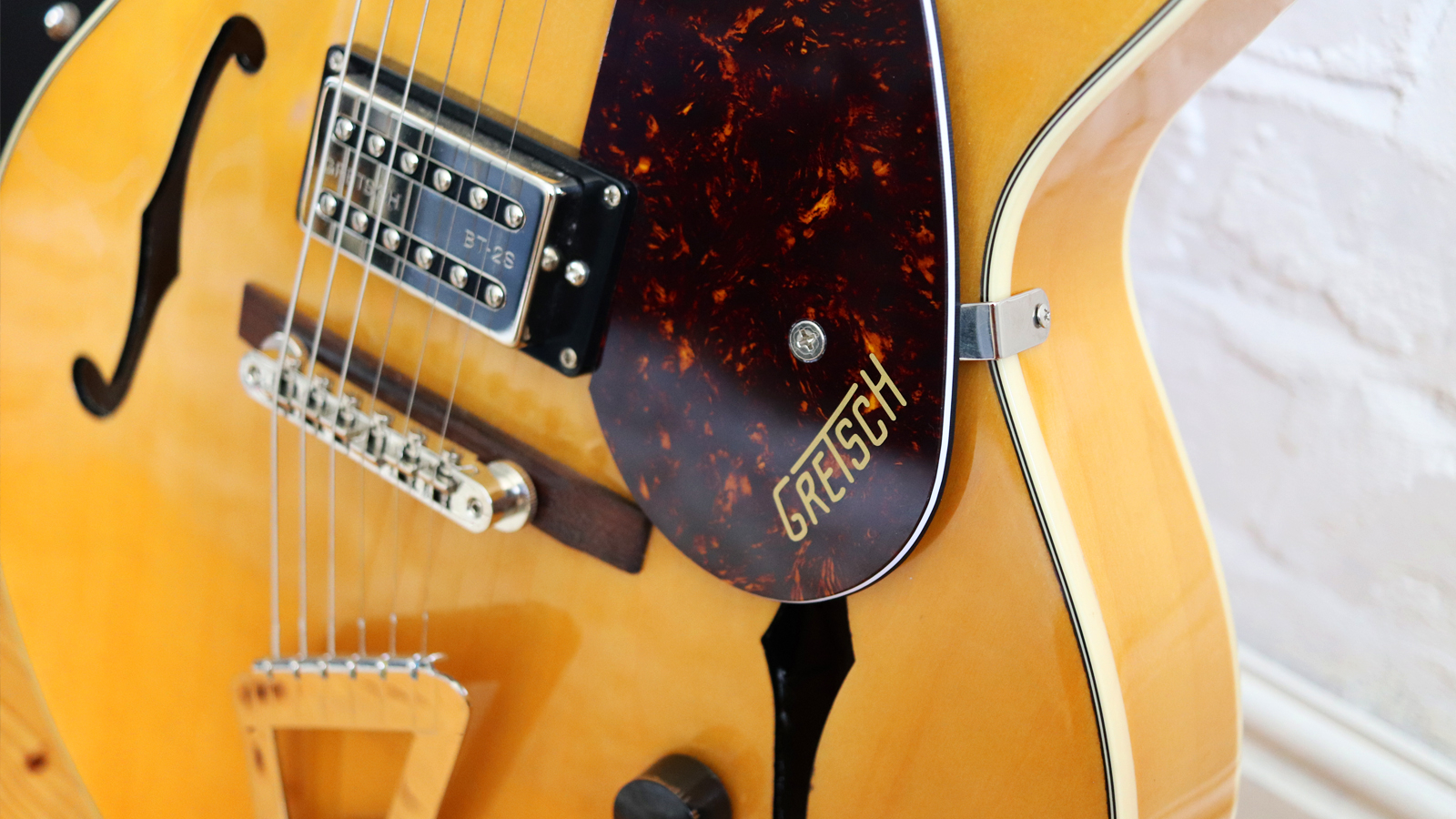
Specifications
Reasons to buy
Reasons to avoid
✅ Buy if you're into vintage guitar tones: This hollow body guitar has two vintage-voiced Broad'Tron humbuckers, making it great for classic blues, jazz, and country guitar tones.
❌ Avoid if you're a smaller player: The hollow body makes it pretty massive, so for younger or smaller players this guitar will probably be too unwieldy to get started on.
Build: ★★★★☆
Playability: ★★★★☆
Sound: ★★★★ ½
Overall: ★★★★☆
Build: The Gretsch G2420 Streamliner impresses with its stunning aesthetics and lightweight construction. Finished in a glossy Village Amber that showcases the laminated maple top's grain, it features a striking tortoiseshell pickguard and a Chromatic II trapeze-style tailpiece that oozes retro mojo.
Playability: Playing the Streamliner is a joy, thanks to its comfortably designed neck, which, while it looks vintage, feels very contemporary. Although upper fret access is somewhat limited, the guitar is beautifully set up out of the box, requiring no adjustment for immediate playing. However, just like the ES-335 above, the large body size may pose some comfort challenges for smaller players, particularly when seated.
Sound: I found the tones that this Gretsch produces to be much more vibrant and expressive than I was expecting. The upgraded BT-2S pickups offer more output than vintage models without sacrificing warmth. This makes the Streamliner versatile, catering to various musical styles beyond the traditional blues and jazz, providing a rich, vibrant tone that I couldn't get enough of.
Watch our demo...

"Although it's perfect for those who like their tone of the vintage variety, the Gretsch G2420 Streamliner is certainly versatile enough to excel in many styles. The combination of a super playable neck and updated pickups makes this guitar much more than just a vintage throwback – it's sure to inspire players both old and new."
Read more: Gretsch G2420 Streamliner review
Spec comparison
Model | Price | Suited for | Sound profile |
|---|---|---|---|
Yamaha Pacifica 112V | $309/£269 | Teens/Adults | Very versatile. From clean to hard rock, this guitar excels in many styles |
Ibanez GRGM21M-BLT | $169/£189 | Kids | Sharp, aggressive, and ideal for rock and metal |
Squier Classic Vibe ‘50s Stratocaste | $429/£379 | Adults | Bright, vintage tone - good for blues, pop, classic rock |
Squier Sonic Strat H | $219/£139 | Kids | Warm and simple tone that sounds great for rock |
Fender Player II Telecaster | $799/£679 | Adults | Bright and twangy - perfect for country, indie, and alternative rock |
Jackson JS Series Dinky JS11 | $159/£149 | Kids/Teens | High-output, metal-leaning tones |
PRS SE CE 24 Standard | $499/£379 | Adults | Balanced, warm with clarity; good for all genres |
Epiphone ES-335 | $599/£499 | Adults | Warm, full-bodied - perfect for jazz, blues, rock |
Gretsch G2420 Streamliner | $549/£469 | Adults | Resonant and rich - ideal for jazz, rockabilly, and country |
Also tested
So those are our top picks, but there are still plenty more options out there for the beginner guitar player. Here are some more of our favorite guitars we tested in the process of putting this guide together, whether you want a classic axe for vintage vibes or a more rock-oriented guitar.
Epiphone Les Paul Studio
Body: Mahogany | Neck: Mahogany | Scale: 24.75 | Fingerboard: Pau Ferro | Frets: 22 | Pickups: Epiphone Alnico Classic PRO
The Epiphone Les Paul Studio is the Gibson offshoot brand’s best beginner electric guitar, and it packs all that knowledge and understanding into a near-perfect package here. Two humbuckers deliver a great palette of tones, from sparkly cleans to thick overdrive, and everything in between.
The mahogany body and neck ensure sustain that goes for hours, as well as super solid build quality. You don’t get all the frills and extras of the more expensive models, but who cares when it looks, plays, and sounds this good?
Read more: Epiphone Les Paul Studio review
Yamaha Revstar Element RSE20
Body: Mahogany | Neck: Mahogany | Scale: 24.75 | Fingerboard: Rosewood| Frets: 22 | Pickups: YGD-designed VH3 humbuckers
The original Revstar series launched back in 2015 to much acclaim and these MkII models offer some significant improvements over the original. The Yamaha Revstar Element RSE20 makes a fantastic first guitar, one that will last you well past the beginner stage of playing.
The chambered mahogany body is resonant and lively, with pickups voiced to a hot vintage-type tone. The bridge pickup delivers a powerful yet balanced voice, not too sharp in the high end whilst the neck pickup offers that thicker, smoother PAF-style sound that’s so highly sought after.
Read more: Yamaha Revstar RSE20 review
Squier Bullet Mustang
Body: Basswood | Neck: Maple | Scale: 24 | Fingerboard: Laurel | Frets: 22 | Pickups: Squier humbuckers
Squier - being the budget-friendly arm of Fender - has been responsible for some of the best beginner electric guitars that you can get your hands on. If you’ve ever listened to music, we guarantee you’ll have heard a Fender - or possibly even a Squier - electric guitar.
For the price, the Squier Bullet Mustang is a pretty impressive piece of gear. It sounds, plays, feels, and looks good - everything you need a beginner electric to do. Yes, it definitely feels like a cheap instrument in some areas, but with a target audience of children, beginners and those on a budget, the good by far outweighs the bad.
Read more: Squier Bullet Mustang review
Key terms
Starting out on an electric guitar can feel overwhelming, especially when you're bombarded with jargon from players who’ve been at it since the '70s. Whether it is online forms, in your local shop, or on social media, the lingo comes fast. But worry not, I have rounded up the most common terms you are likely to encounter as a beginner, with simple, no-nonsense explanations.
Tuning: This refers to the pitch of each string on your guitar. Most beginners start with standard tuning, which goes from the lowest string to the highest: E, A, D, G, B, E.
Strings: The metal wires stretched along the guitar neck from the bridge to the headstock. When picked or strummed, the strings vibrate and produce sound.
Headstock: This is the body part found at the top end of the guitar neck, where you will find the machine heads used to tighten or loosen each string to change its pitch.
Machine heads: Otherwise known as tuning pegs, these are mechanical gears housed on the headstock that are turned to alter the string pitch
Neck: The long central part of the guitar that connects the body to the headstock. It houses the frets and fretboard, and it is where your fretting hand makes contact while playing.
Fretboard: Also referred to as fingerboard, this is a long bit of wood that runs the length and sits on top of the neck. It is easier to spot darker wood fretboards like rosewood, but it can also be made of lighter woods like maple.
Frets: Frets are the small metal strips set into the neck that divide it into semitones. Pressing a string against a fret changes the note you hear.
Body:The body of the electric guitar is where the bridge, controls, pickups and scratch plate are all located. Electric guitars are usually distinguished from one another by different body designs and shapes.
Bridge: The bridge holds the strings in place on the body and helps transfer their vibrations. Some bridges are fixed, while others – called floating bridges – can move for vibrato effects.
Pickups: Pickups are components that detect string vibrations and convert them into an electrical signal, which is then sent to your amp. They’re made from magnets, wire, and pole pieces.
Control knobs: Control knobs on an electric guitar typically adjust the volume and tone of your sound. The tone knob changes how bright or warm the guitar sounds, while the volume knob controls how loud the output is.
Selector switch: The selector switch controls which pickup or pickups are active. Depending on your guitar’s setup, it can switch between pickups or combine them for different tones.
Output jack: Often mistaken for an input jack, the output jack is where you plug in your instrument cable. It sends your guitar’s signal to an amp or external device.
Whammy bar: Also known as a tremolo arm, the whammy bar lets you change the pitch of your notes by moving the bridge. It is used to create vibrato effects and works on guitars with tremolo bridge systems.
How to choose
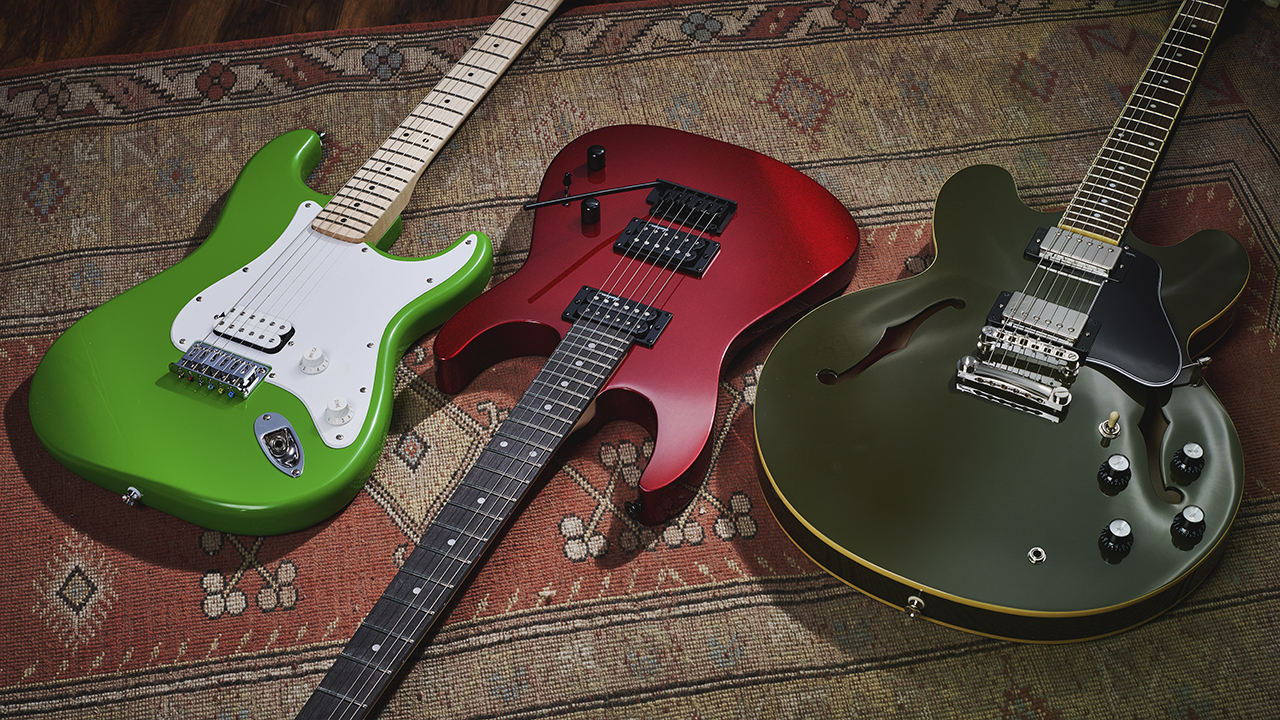
If you've decided that you want to play the electric guitar, then first of all, welcome! You're part of an exclusive club, full of rock stars, country icons, and plenty of normal folk like you and I.
Whatever styles of guitar music you're into, an electric guitar can cover pretty much everything. Accompanied by one of the best guitar amps, your beginner electric guitar will take you from learning your very first riffs, all the way to potential stardom. There’s a lot to consider when looking for the best beginner electric guitar. Every single part of the instrument affects the resulting sound and feel. Let’s take a look at them...
The first thing we'd suggest you think about is the shape of the guitar. The amount of shapes and sizes on the market is huge, and while those factors don't always influence the sound of your guitar, they affect how comfortable it is to play and what it looks like – two things that are crucially important for us guitarists.
Next up are the pickups. When it comes to electric guitars, pickups are one of the most critical components to consider, especially for beginners. Pickups are essentially the microphones of the guitar; they convert the vibrations of the strings into electrical signals that are sent to the amplifier. There are two main types of pickups: single-coil and humbucker.
Single-coil pickups are known for their bright, sharp tone, but they can pick up noise from other electrical sources, which may lead to hum or interference, especially when playing if a lot of distortion. On the other hand, humbuckers produce a thicker, warmer sound and are typically used in heavier genres like rock and metal. They are designed to cancel out interference, giving a cleaner output with played with lots of gain.
As a beginner, understanding the type of sound you want can help you choose the right guitar. Single-coils are great for a clean, jangly sound, while humbuckers offer a warmer tone. Experimenting with different pickups will allow you to find your unique sound and style.
Next is the scale length of your guitar. Scale length is another important factor to consider, as you want a guitar that fits you. This refers to the distance between the nut (the top of the guitar neck) and the bridge (where the strings are anchored). The scale length can affect the feel of the guitar as well as its tonal characteristics.
A shorter scale length, for example, often results in a guitar that is easier to play, especially for those with smaller hands. For beginners, choosing a guitar with a scale length that feels comfortable to play can make a significant difference in your learning experience. You'll be more inclined to practice and develop your skills if the instrument feels right in your hands.
What not to worry about

When you’re diving into the world of electric guitars for the first time, it’s all too easy to get lost in a sea of technical specs that make little to no sense to you. You might find yourself knee-deep in discussions about fret wire sizes, racking your brain over whether alder or basswood is superior, or scratching your head trying to figure out if a tone pot is better at 250k or 500k. I’ll cut straight to the chase, none of that stuff really matters - at least, not yet!
Wood choice: If you haven't been playing for a decade and don’t have a golden ear, chances are you won’t hear the difference between mahogany and poplar through your 10-watt practice amp. Instead, focus on how the guitar feels in your hands. Does it spark your creativity? That’s what counts!
Fret type: Sure, jumbo frets can make bending notes easier, and vintage frets might feel smoother for certain styles, but as a beginner, your priority should be on building calluses and playing clean, crisp notes. Find a fretboard that feels good to you, but don’t get caught up in tiny details.
Electronics and wiring: Unless you’re planning on making modifications right away, you won’t notice the slight differences between pot values or the type of wiring hiding inside your new guitar. Most beginner guitars are wired to just work, and that’s precisely what you need as you’re starting out.
Brand loyalty: It might be tempting to chase after the big names, like Fender, Gibson, and PRS, but don’t underestimate the budget-friendly names. Beginner models from brands like Squier, Yamaha, or Harley Benton can be just as playable and far more affordable. Remember, it’s not about the logo; it’s about how the guitar feels and plays in your hands.
The bottom line: Don’t sweat the small stuff. Select a guitar that inspires you to pick it up every day. Let your passion guide you. If it feels good to you and makes you want to play, you've found the right one.
FAQs
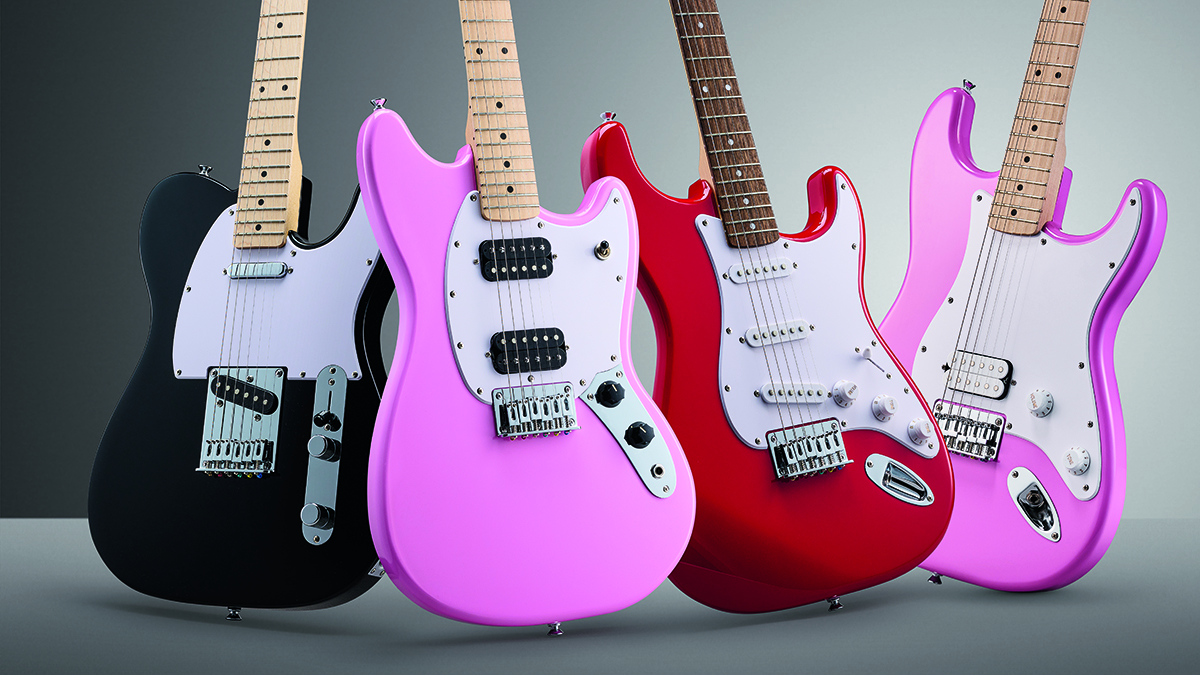
What wood is a beginner electric guitar typically made from?
The woods used for electric guitars do vary. You’ll find the likes of basswood and nato being used on some beginner electric models, which helps keep costs down, whilst others utilize mahogany, which is usually heavier. How much of an impact the body wood has on the sound of an electric guitar is widely disputed, but it certainly affects the weight of it.
How do pickups work?
Probably the most influential part of the electric guitar's sound is the electric guitar pickups with which it is equipped. We won't get too nerdy or science-y here, but pickups are essentially either one or two magnets wrapped with wire. This creates a charged magnetic field which, when disrupted by a moving string, creates a signal that is then taken through your guitar cable to your amp. There are different types of electric guitar pickups available on different guitars, the most popular options being either single coils (which are found on Stratocasters and Telecasters) or humbuckers (which are usually found on Les Pauls).
The tonal difference between these types of pickups is pretty massive. Single coil pickups usually sound a lot brighter and thinner and put out a signal that is much lower than a humbucker – making them great for clean sounds, and a favorite choice for country, pop, and funk players among others.
Humbuckers produce a tone that is much thicker and warmer sounding due to their larger size and construction, and although they sound great clean, they have a higher output which makes them distort sooner. The vast majority of classic rock and metal players opt for humbuckers for this reason.
When it comes to what you can play with each type of pickup, the statements we've made are just a general guide. Any kind of music can be played on any type of guitar with any type of pickup. That's the beauty of the guitar! It's all about how you play, not what you play.
Does guitar hardware matter?
Hardware is quite important when looking for the best beginner electric guitar. Hardware comprises things like the bridge, saddles, tuning pegs, and the output (the bit you plug your cable into). Investing in better quality, sturdier hardware will mean your guitar will require less maintenance and hold its tuning better; it can even help with sustain, making it sound better too.
Which brands make the best beginner electric guitars?
When it comes to the best beginner electric guitars, near enough every major brand offers something. Whether it's through the main brand or a more budget-oriented subsidiary, there'll be something on offer from many of the biggest names in the business.
Some of the very best beginner electric guitars come from Squier, Epiphone, PRS, and Yamaha. These brands are consistently releasing brilliant instruments that are designed to give beginners the best possible start to their playing careers.
There are also brands such as Gretsch and Ibanez to consider. Ibanez guitars are usually built for those who are more into heavier styles of music, so if you're a metalhead, then they're worth checking out. Likewise, for you country and blues guys, Gretsch guitars are some of the best and most appropriate guitars you could choose. While all guitars can do all styles, some are definitely more suited to certain genres of music.
How much should you spend on a beginner electric guitar?
Finding the best beginner electric guitar is about balancing all of the above with the cost. You can pick up something between $150-200 that will stand you in good stead for learning; the more you pay, the more likely you’ll find better hardware, pickups that offer more definition, and better build quality. That said, most people don’t want to spend too much on their first electric guitar in case it’s not something they take to (plus, it gives you an excuse to upgrade a few years later!).
We'd say that the top end of your budget should be no more than around $500. Ultimately, you’re the one that’s going to be playing the guitar, so it’s important that you find something that’s comfortable to play, and that inspires you to pick it up.
Can you really learn to play guitar online?
Picking up one of the best beginner electric guitars is no use unless you know how to play at least the basics on it. Some people can pick things up by ear or are lucky enough to have someone in the house to guide them. If neither of these apply, we would always recommend seeking out lessons.
Face-to-face lessons are a great way to build a connection with a teacher and develop your skills in a hands-on way. Still, if you want to quickly understand basic guitar techniques, learn from the comfort of your home and don't have a huge budget, online lessons are a great, affordable route to take. You can learn more and discover our top picks in this guide to the best online guitar lessons.
How we test the best beginner electric guitars
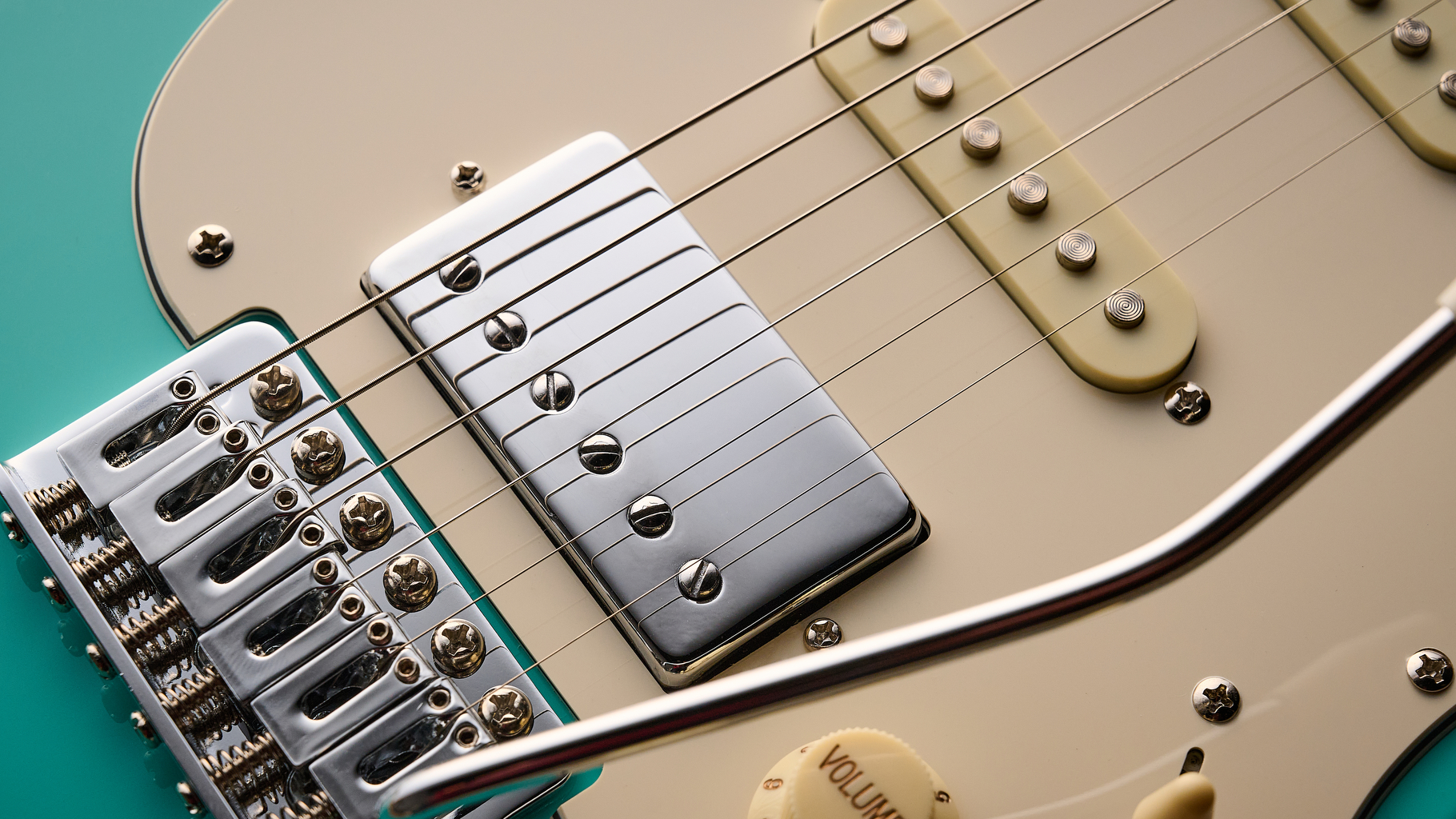
When we receive a beginner electric guitar for review, we systematically ask ourselves the following questions to put ourselves in the correct headspace:
Here are the tests that we carry out to make sure that our initial questions are answered and we are recommending the best product possible.
Build quality: Before we even think about tuning up, we give the guitar a full once-over to check the build quality. No matter the price point, we inspect every component, from making sure the machine heads turn smoothly without slipping, to checking the selector switch for a firm, reliable click without any flimsiness.
We then turn our attention to the neck and fretboard, looking closely for any sharp fret ends, poorly seated frets, or high spots that could cause unwanted buzzing or choking out. We will even check that the skunk stripe on the back of the neck sits flush with the surface, and that there are no splinter-causing imperfections in the finish.
Finally, we assess the overall finish of the instrument. While we don’t expect boutique-level perfection from budget guitars, we still expect manufacturers to hit a certain standard. Obvious dings, scratches, or blemishes just shouldn’t be present, and if they are, we’ll call them out.
Playability: Once we are satisfied the guitar’s build quality checks out, we will tune it up and put it through its paces. For beginners, comfort is key – so we pay close attention to factors like neck profile – is it comfortable for new hands? – body shape, overall ergonomics, and how the guitar feels when resting on a lap. Also, what’s the action like? Having a low action tends to be easier for beginners, so this is considered when testing the review guitar.
While we all have our own preferences after years of playing, it is essential to evaluate beginner guitars through the eyes of someone just starting out. There is no point in reviewing an entry-level instrument any other way.
Tone: Then, onto the guitar’s tones. We cycle through all pickup positions and run it through a range of amp tones, gain levels, and effects, covering everything from hardcore punk to Taylor Swift. For beginner guitars, tonal versatility is key. It’s important that a first instrument can handle a wide mix of styles while the player figures out their own sound.
We listen for clarity across the frequency range, note separation, output strength, and whether the tone leans bright, warm, or somewhere in between.
Value for money: Once we have assessed the guitar’s build, comfort, tone, and overall performance, we consider how it stacks up against its price. If a guitar scores highly in those areas but comes in at a lower cost, it is going to rank well in terms of value. Most beginners don’t want to spend a fortune on their first instrument, so it is crucial that the guitar strikes the right balance between performance and affordability.
About our videos
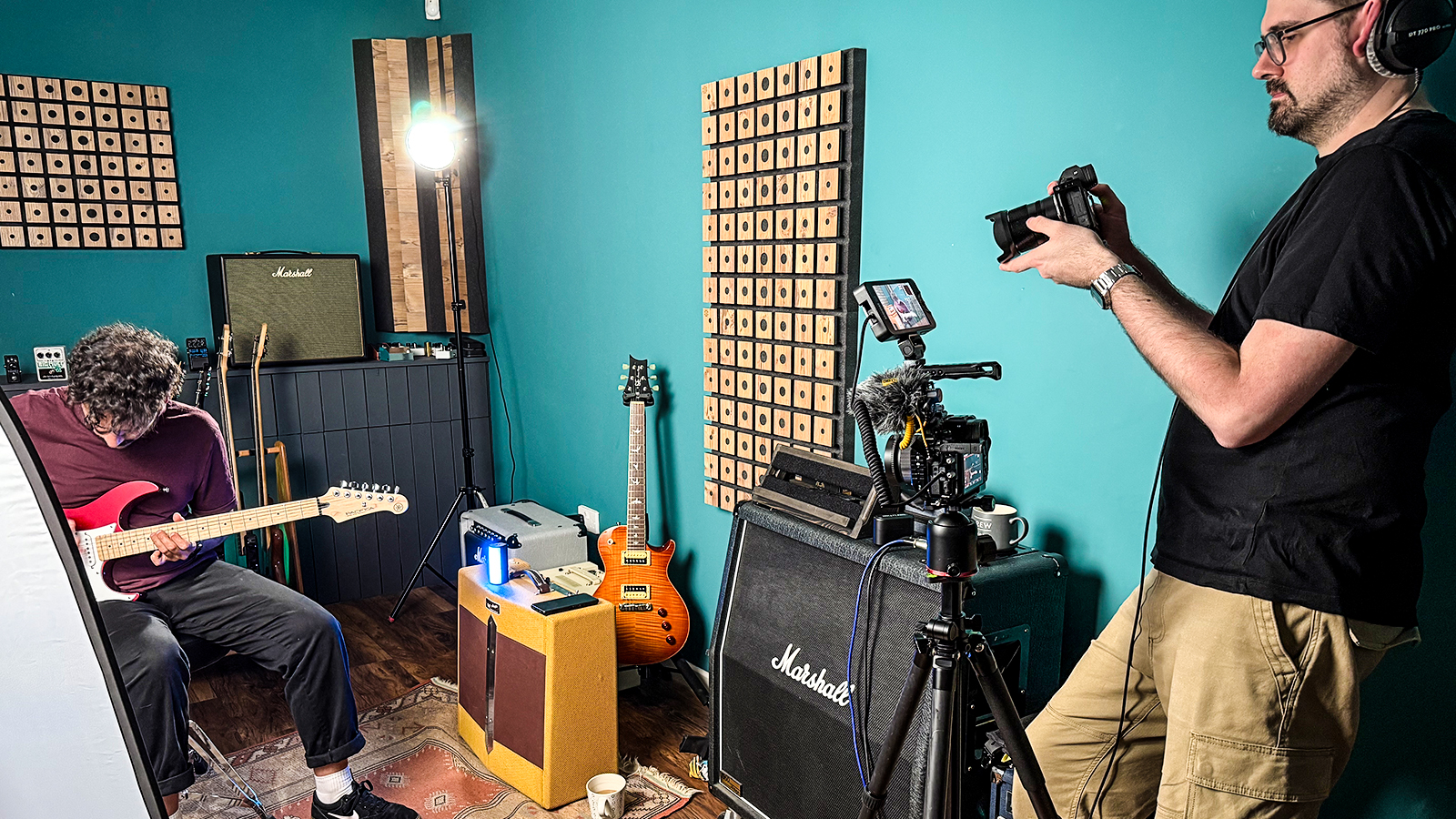
One of the most significant factors to consider when choosing your first guitar is the sound it produces – that’s why we've recorded and filmed a short playing demo of every guitar in the guide. That way, you can make an informed decision based purely on which model you think sounds the best.
In order to keep things simple, our demonstrator and Guitar World team member Matt performed the same chord progression and licks on every guitar. Each passage was performed on each of the guitar's pickup positions and played both clean and distorted.
We recorded the video demos in our dedicated studio in Bath, UK. If you’re a regular consumer of guitar content on YouTube, you may recognize this space as the famous Guitarist Tone Lounge.
Now, to ensure the most consistent tone possible across all the guitars, we used the Neural DSP Quad Cortex amp modeler. For the clean sounds, we used our favorite US DLX Normal setting paired with a 112 US DLX SC64 cabinet model and a touch of room reverb for some depth. The dirty sounds kept the same US DLX model, but this time partnered up with a Tube Screamer-style overdrive at the front. Of course, we kept the same natural room reverb as the previous setting.
As you’d expect, we applied some post-processing to the audio once it was captured, but we kept this to a minimum, sticking to light compression to maintain consistent levels.
Why trust Guitar World
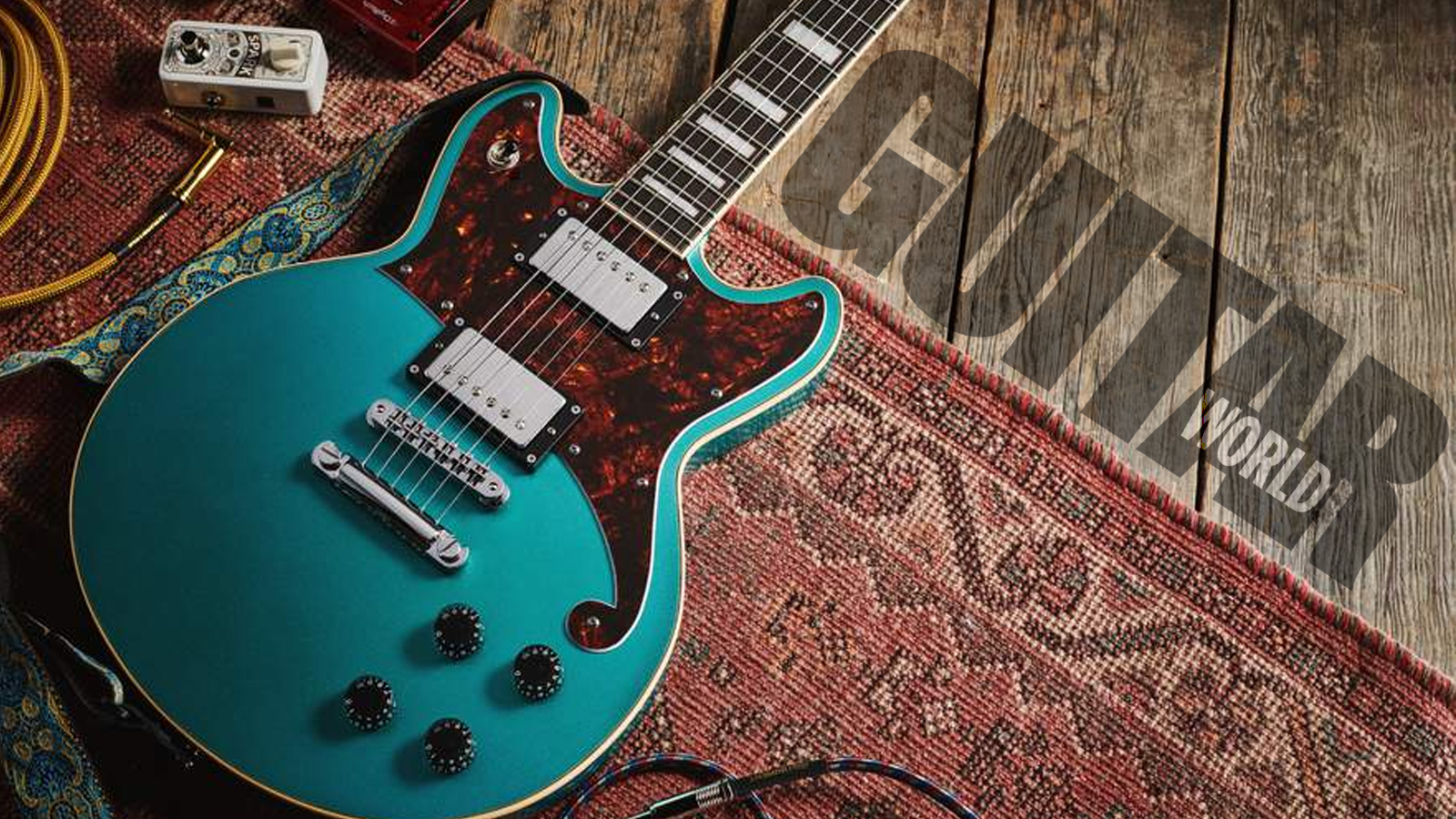
☑️ A global audience of 3.8 million guitarists monthly
☑️ 1,200+ reviews on GuitarWorld.com
☑️ 30+ years of product testing at Guitar World
Guitar World boasts over 44 years of expertise and stands as the ultimate authority on all things related to guitars. The magazine and website feature expertly written gear round-ups and top-quality, authoritative reviews penned by a team of highly experienced industry professionals.
Guitar World's inaugural print issue hit the shelves in July 1980, and ever since, it has been captivating players and enthusiasts with engaging lessons, insightful interviews with the biggest guitar heroes, and priceless buying advice for newbie players.
Furthermore, GuitarWorld.com continues this legacy online and serves as the hub of the world's foremost authorities on guitar playing. The site not only hosts content from Guitar World but also showcases articles from respected publications such as Guitarist, Total Guitar, Guitar Techniques, and Bass Player. With a reach extending to 3.8 million players each month, GuitarWorld.com is a go-to destination for guitar fanatics globally.
Below you'll find more information on the expert authors of this guide.

Daryl is a Senior Deals Writer at Guitar World, where he creates and maintains our 200+ buyer's guides, finds the best deals on guitar products, and tests the latest gear. His reviews have been featured in prominent publications like Total Guitar, Future Music magazine, and MusicRadar.com.
During his career, he has been lucky enough to talk to many of his musical heroes, having interviewed Slash and members of Sum 41, Foo Fighters, The Offspring, Feeder, Thrice, and more. In a past life, Daryl worked in music retail. For a little under a decade, he advised everyone from absolute beginners to seasoned pros on the right gear for their needs.
Daryl is also a fully qualified sound engineer, holding a first-class Bachelor's degree in Creative Sound Production from the University of Abertay.

After spending a decade in music retail, I’m now a freelance writer for Guitar World, MusicRadar, Guitar Player and Reverb, specialising in electric and acoustic guitars, bass, and almost anything else you can make a tune with. When my head’s not buried in the best of modern and vintage gear, I run a small company helping musicians with songwriting, production and performance, and I play bass in an alt-rock band.

Matt is a Junior Deals Writer here at Guitar World. He regularly tests and reviews music gear with a focus on guitars, amps, pedals, modelers, and pretty much anything else guitar-related. Responsible for over 60 buying guides, a large part of his role is helping guitarists find the best deals on gear. Matt worked in music retail for 5 years at Dawsons Music and Northwest Guitars and has written for various music sites including MusicRadar, Guitar Player, Guitar.com, Ultimate Guitar, and Thomann’s t.blog.

Chris Corfield is a journalist with over 12 years of experience writing for some of the music world's biggest brands including Orange Amplification, MusicRadar, Guitar World, Total Guitar and Dawsons Music. Chris loves getting nerdy about everything from guitar gear and synths, to microphones and music production hardware.
Latest updates
05/28/25: We have completely overhauled this page, adding demo videos for a number of guitars, and added more in-depth information and clarity to our buying advice section to help you make a more informed decision on your purchase.
10/30/24: The guide has been checked to ensure it is up to date, and we are still recommending the very best beginner electric guitars on the market right now. We've also added expert verdicts to the end of each product entry so you can better understand our choices.
Read more:
You can trust Guitar World
- Play more comfortably with the best guitars for small hands
- Explore the best beginner guitar amps
- Best guitar picks: find the right plectrums for you
- Practice in peace with the best headphones for guitar amps
- These are the best acoustic guitars for beginners
All the latest guitar news, interviews, lessons, reviews, deals and more, direct to your inbox!

Daryl is a Senior Deals Writer at Guitar World, where he creates and maintains our 200+ buyer's guides, finds the best deals on guitar products, and tests the latest gear. His reviews have been featured in prominent publications like Total Guitar, Guitarist, Future Music magazine, and MusicRadar.com.
During his career, he has been lucky enough to talk to many of his musical heroes, having interviewed Slash and members of Sum 41, Foo Fighters, The Offspring, Thrice, and more. In a past life, Daryl worked in music retail. For a little under a decade, he advised everyone from absolute beginners to seasoned pros on the right gear for their needs.
Daryl is a fully qualified sound engineer, holding a first-class Bachelor's degree in Creative Sound Production from the University of Abertay.
- Richard Bienstock
- Chris Corfield
- Matt McCrackenJunior Deals Writer
